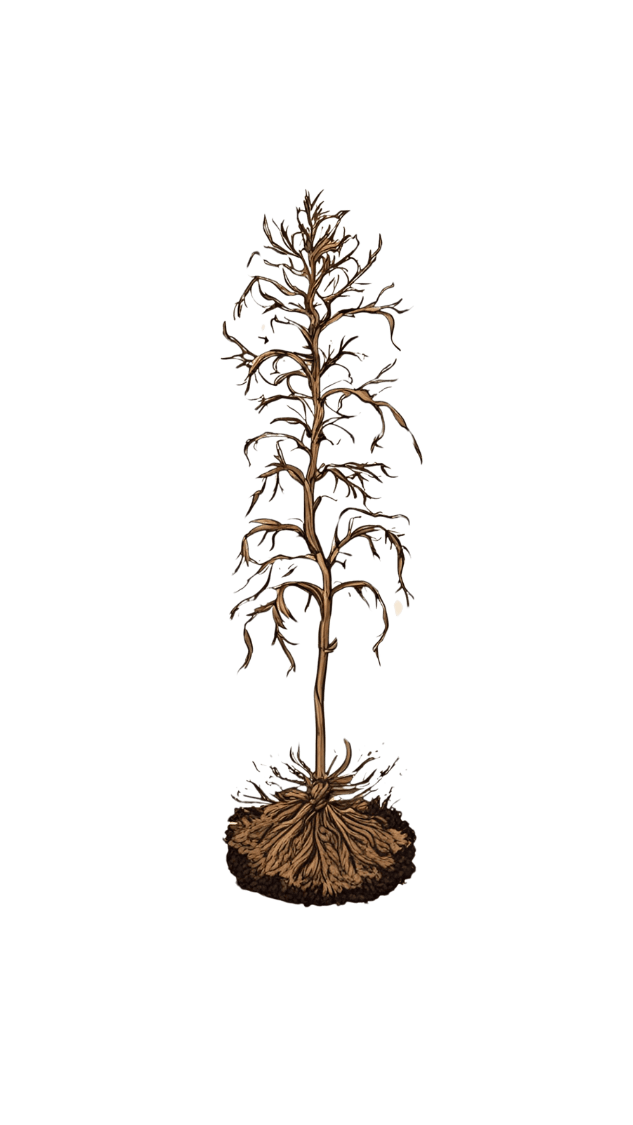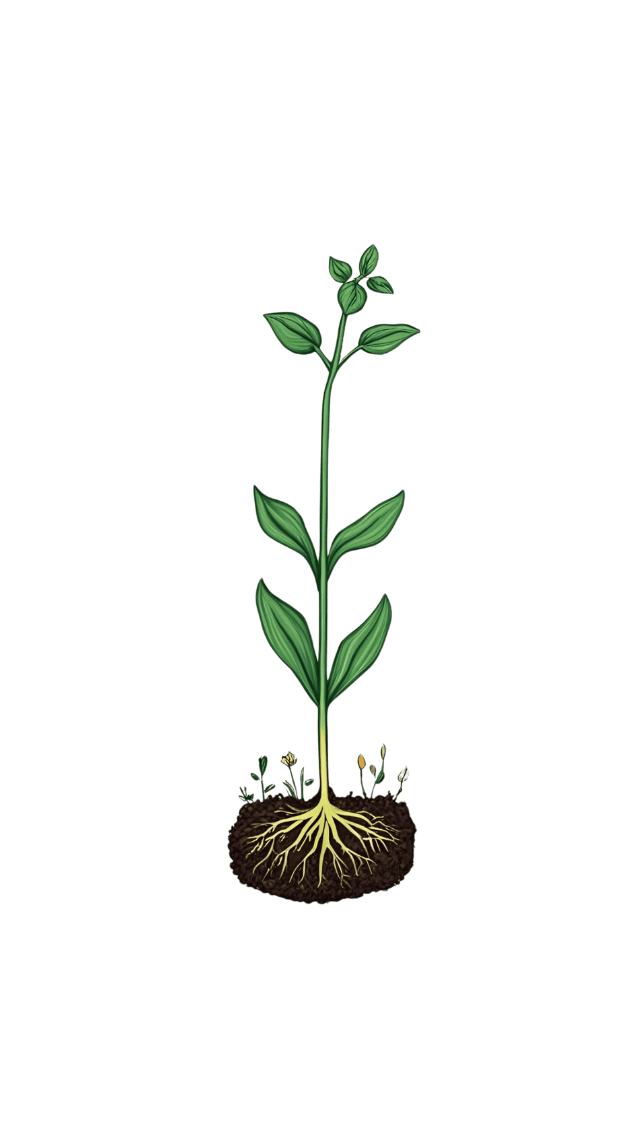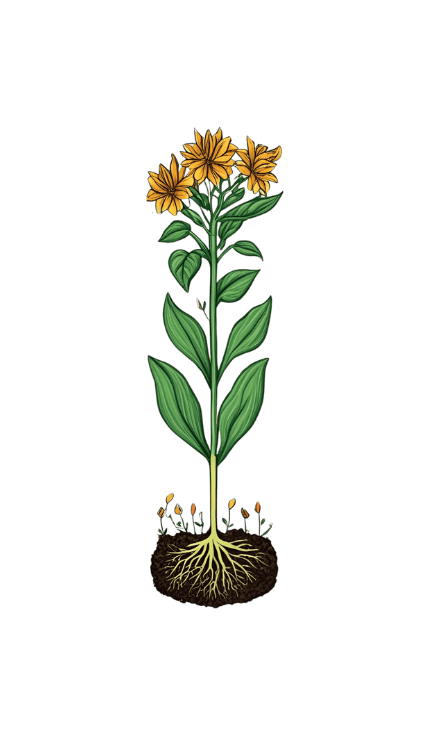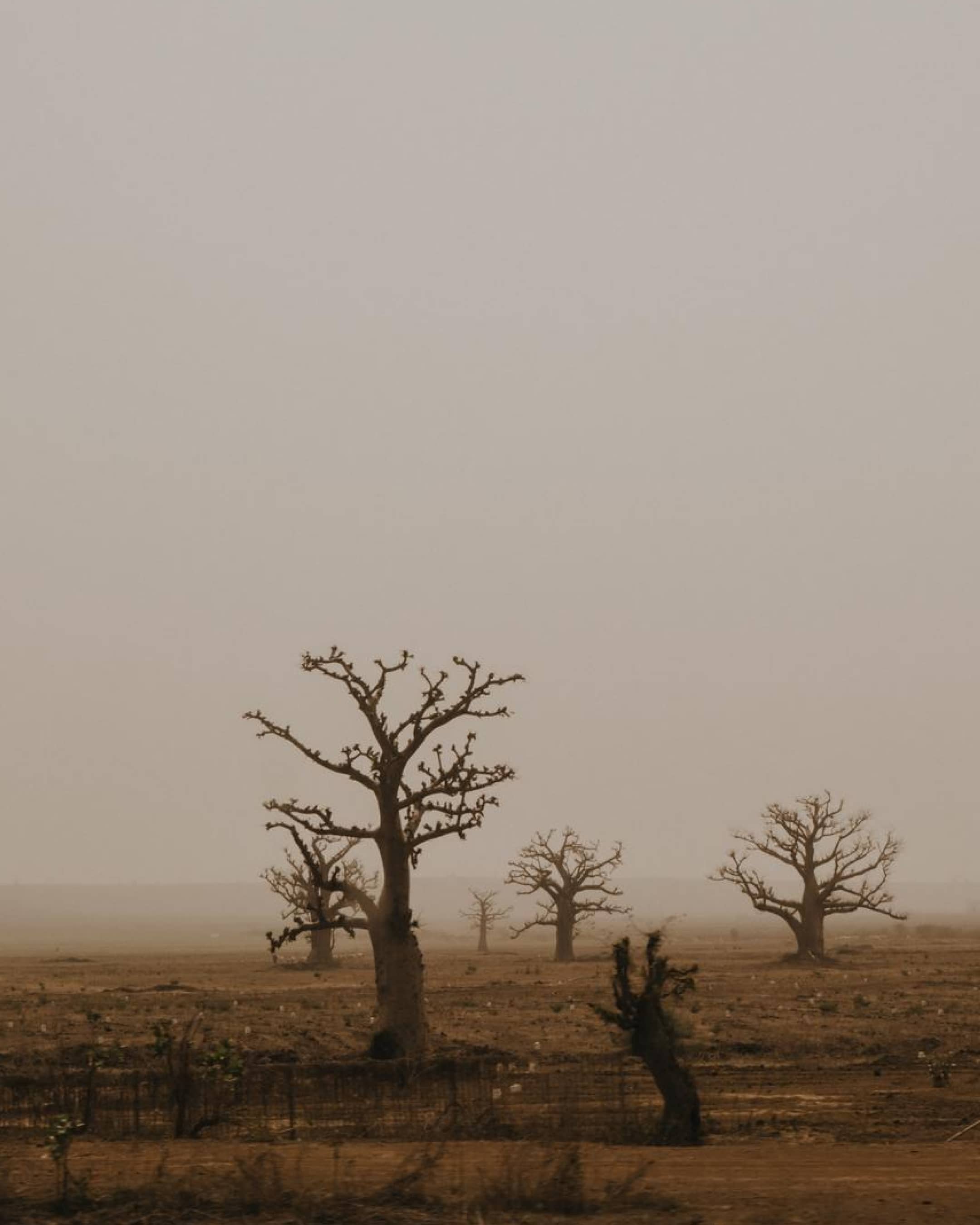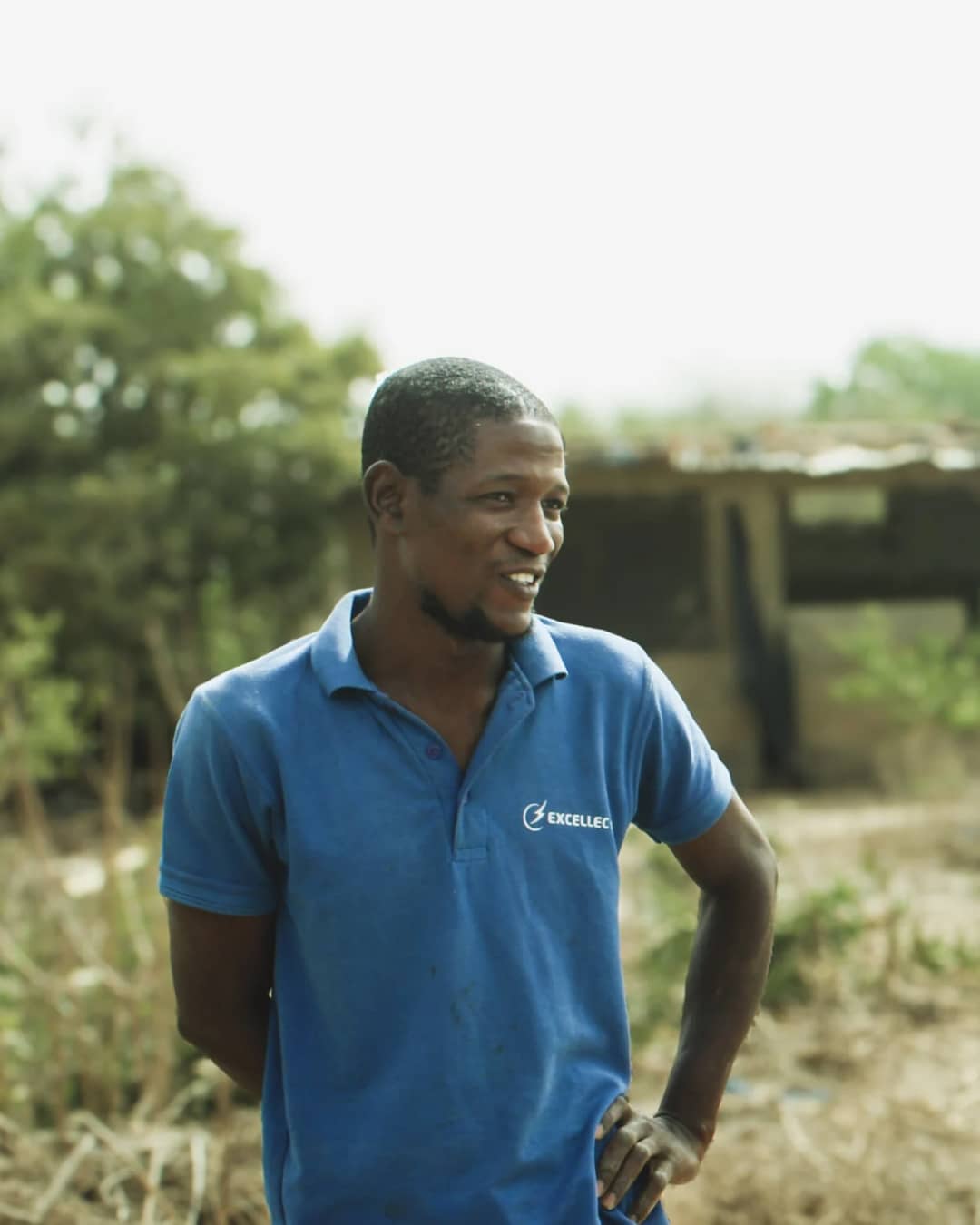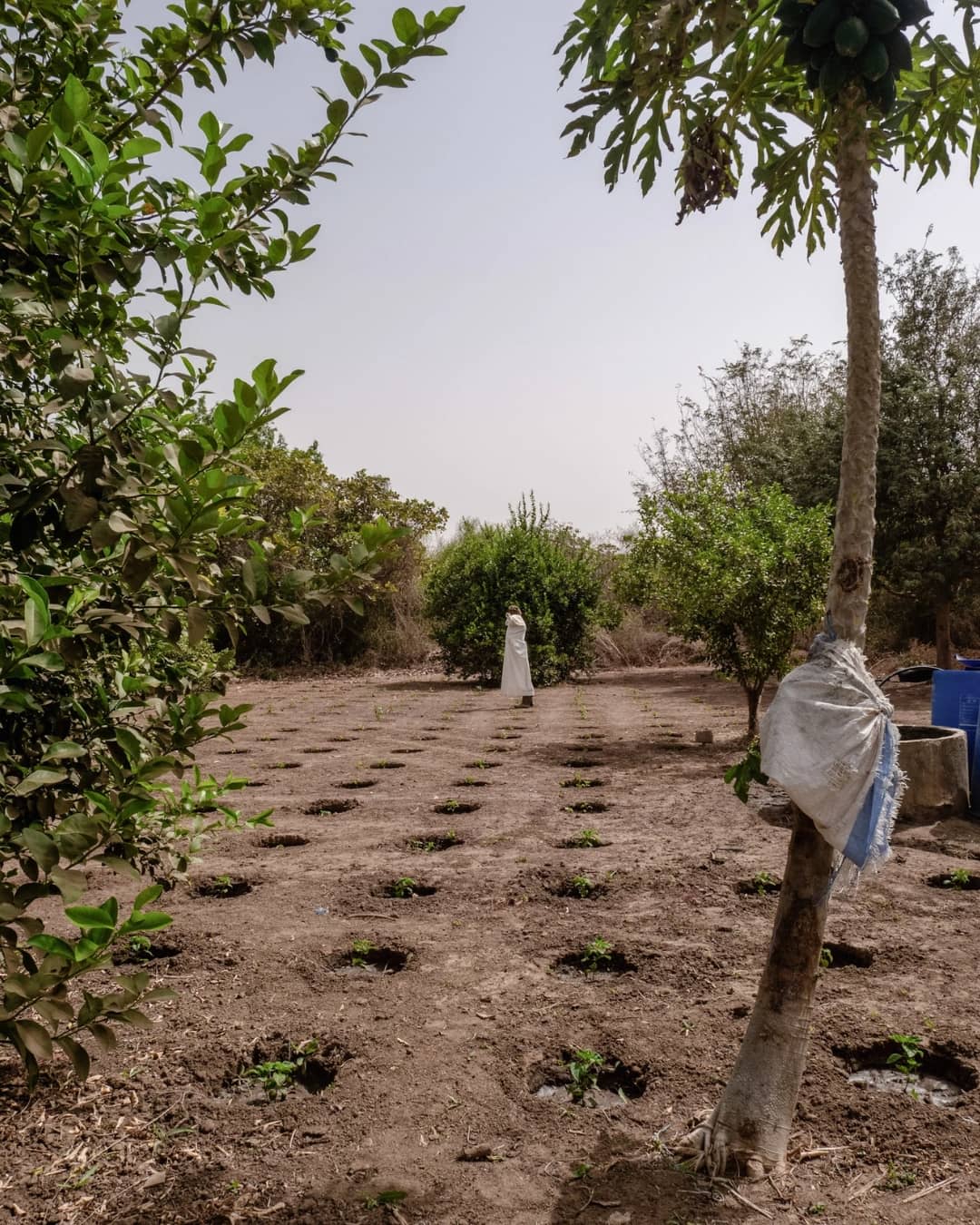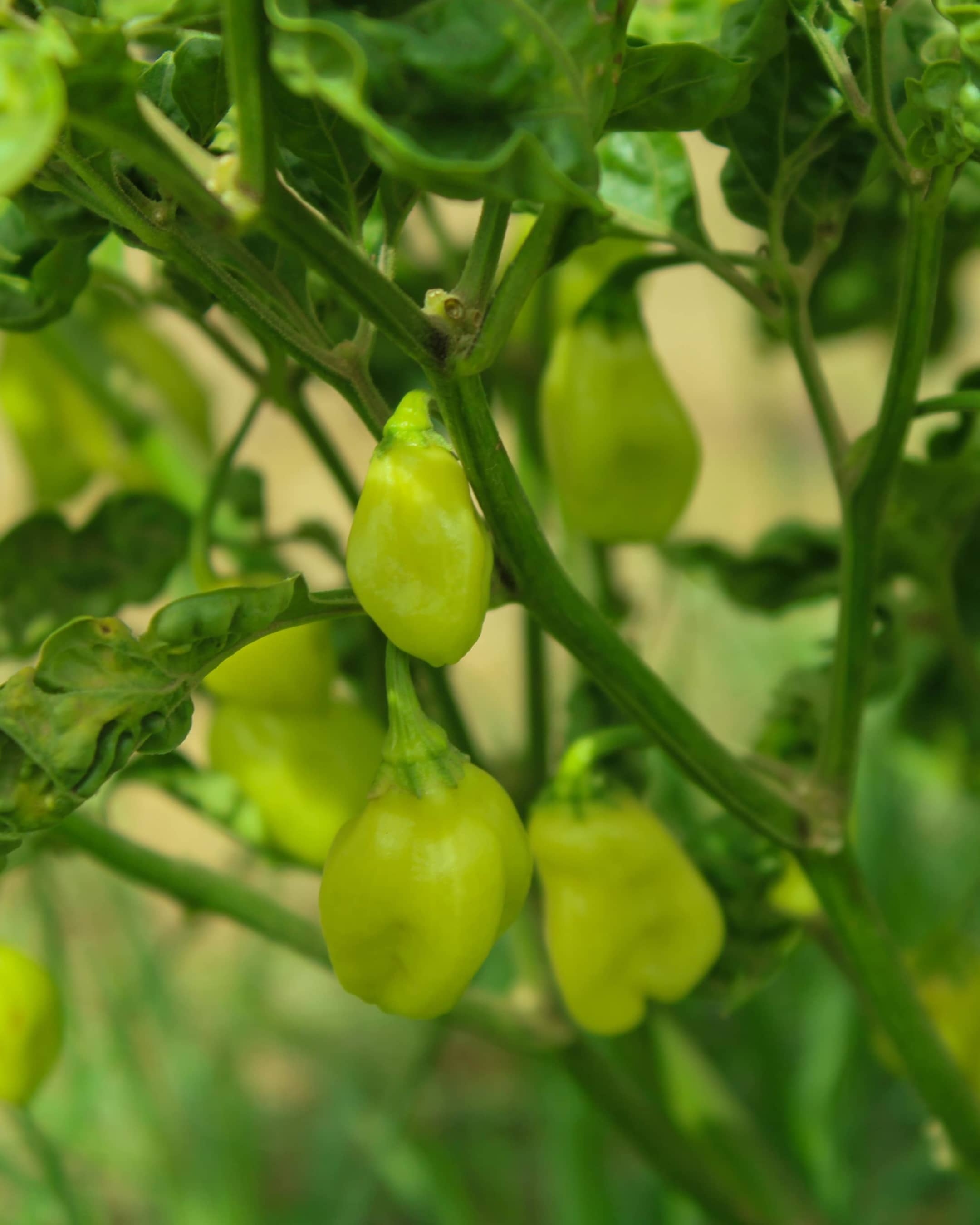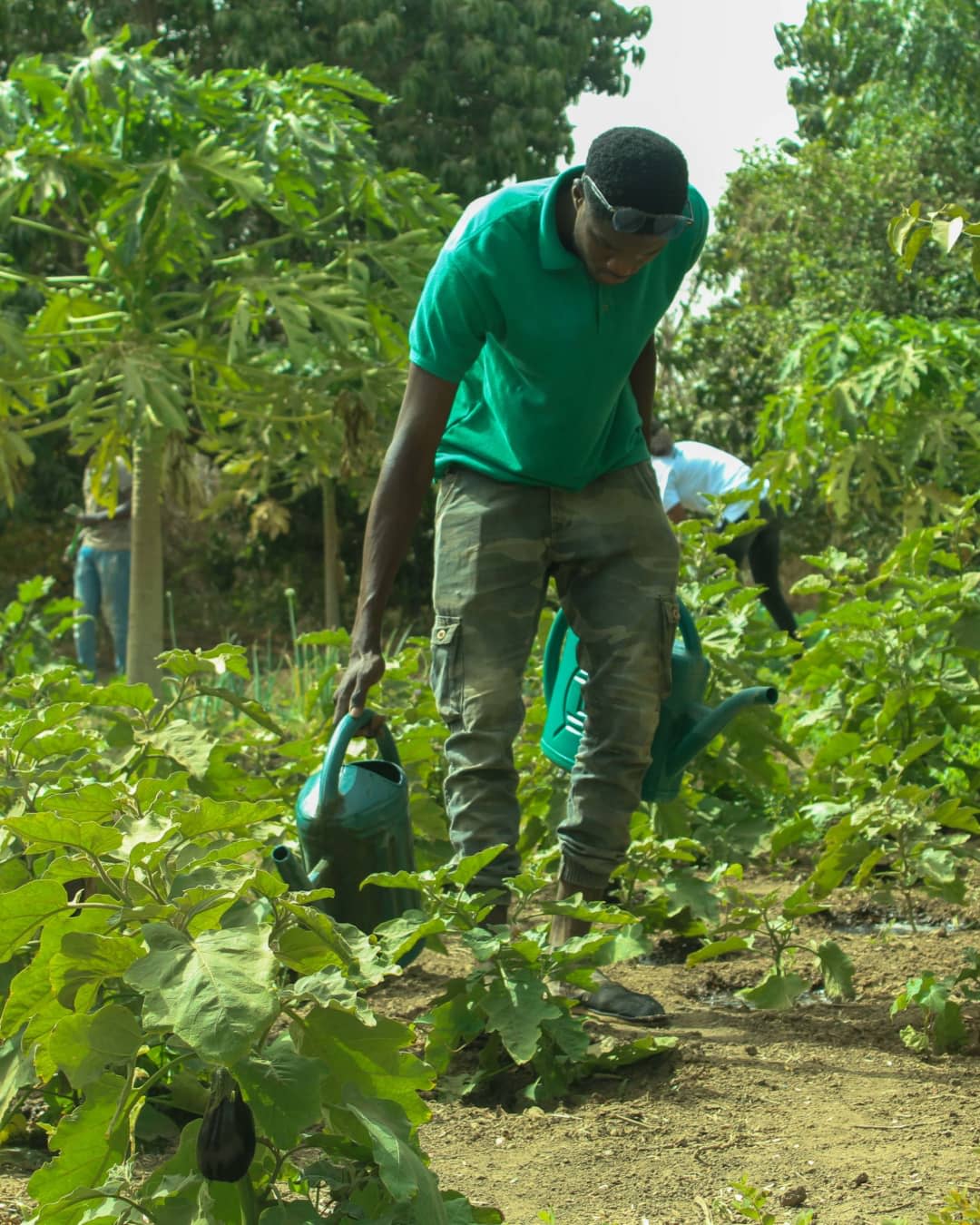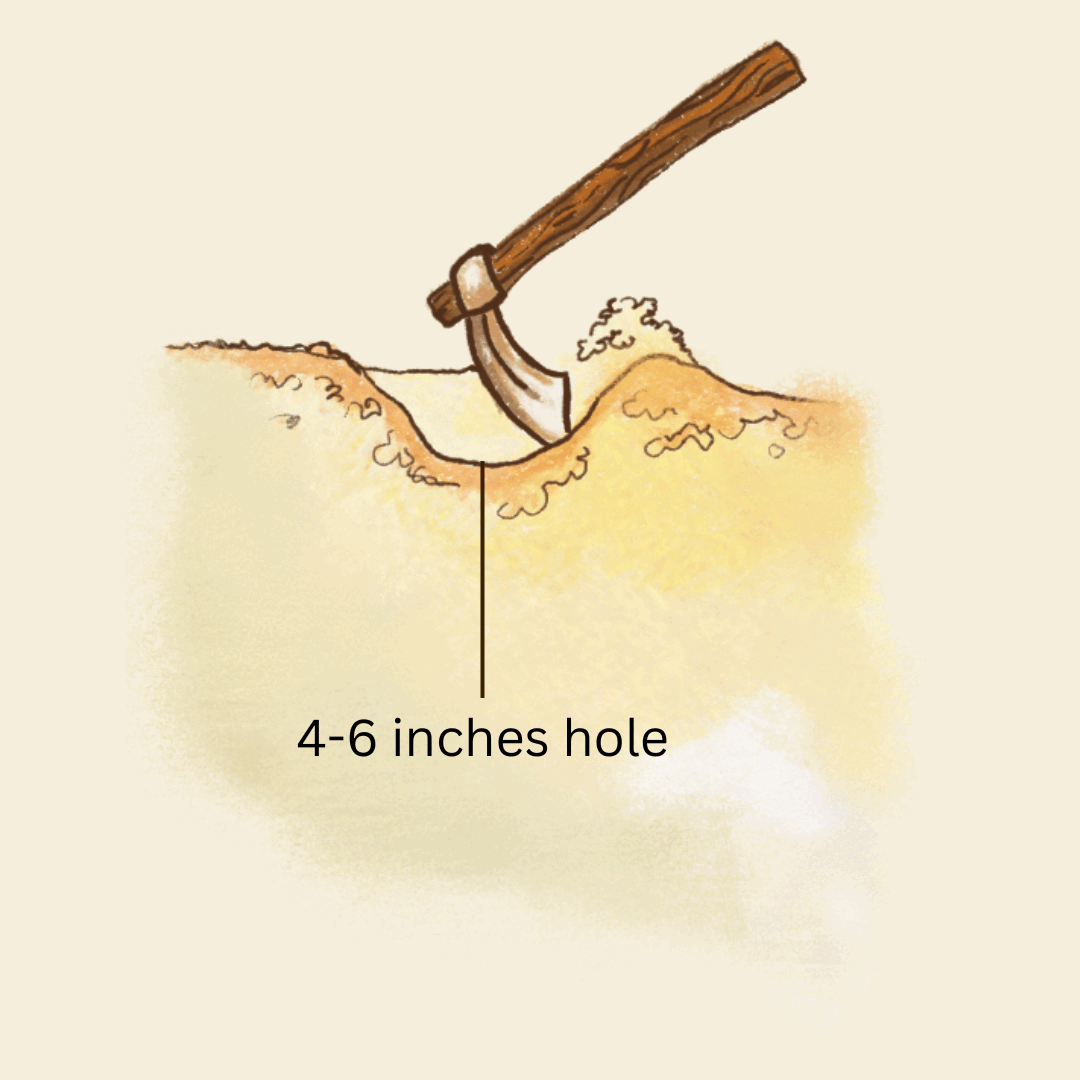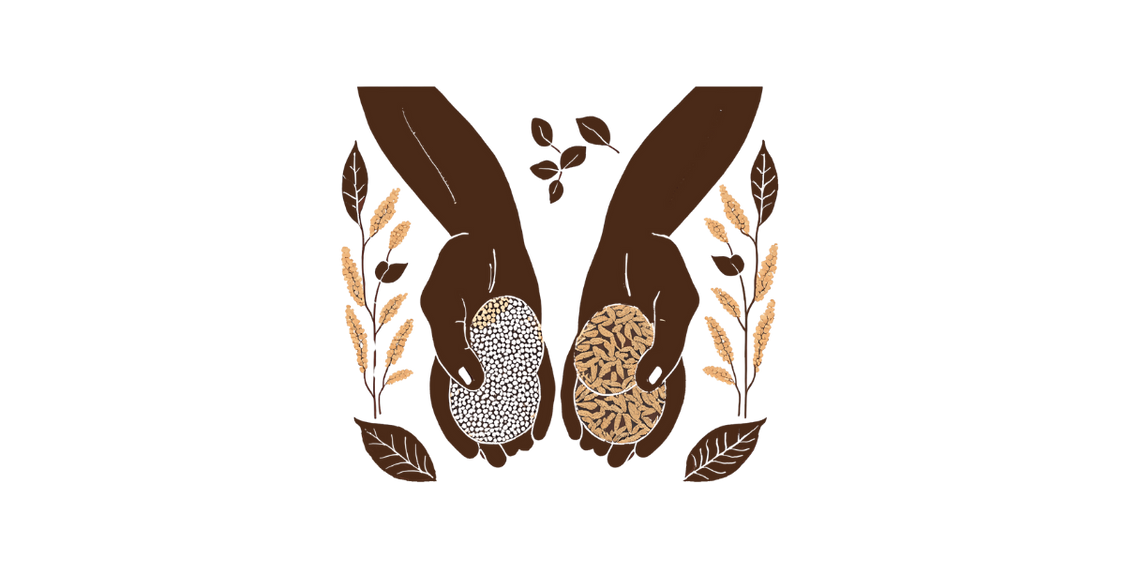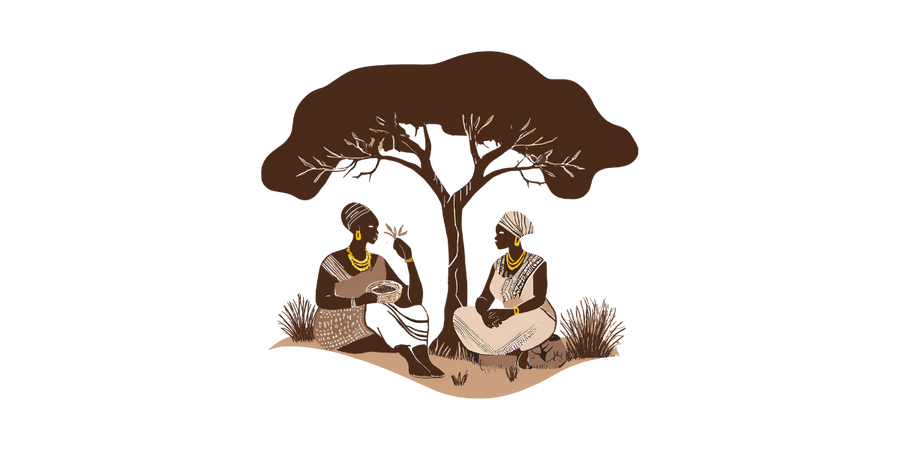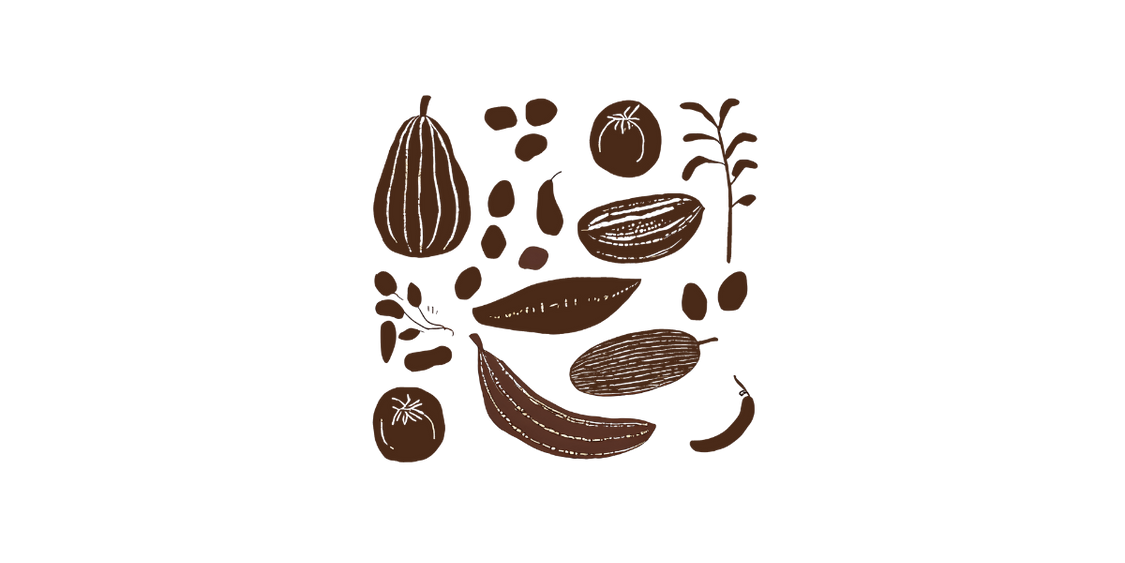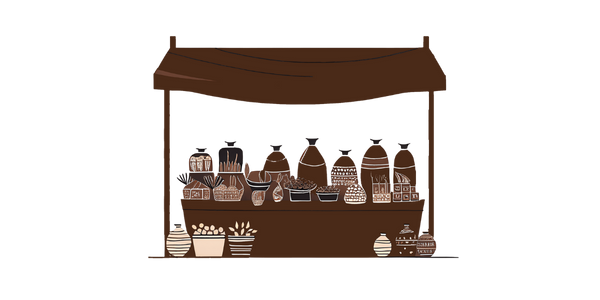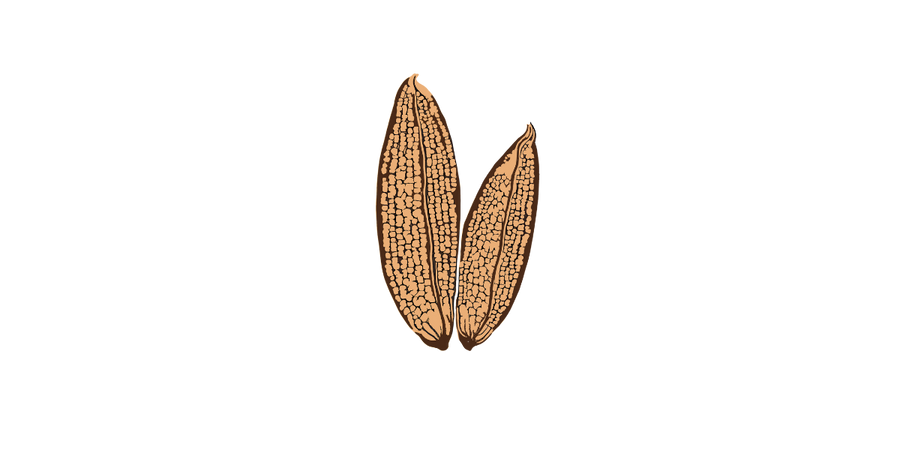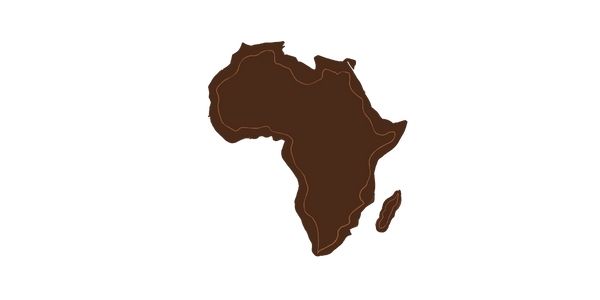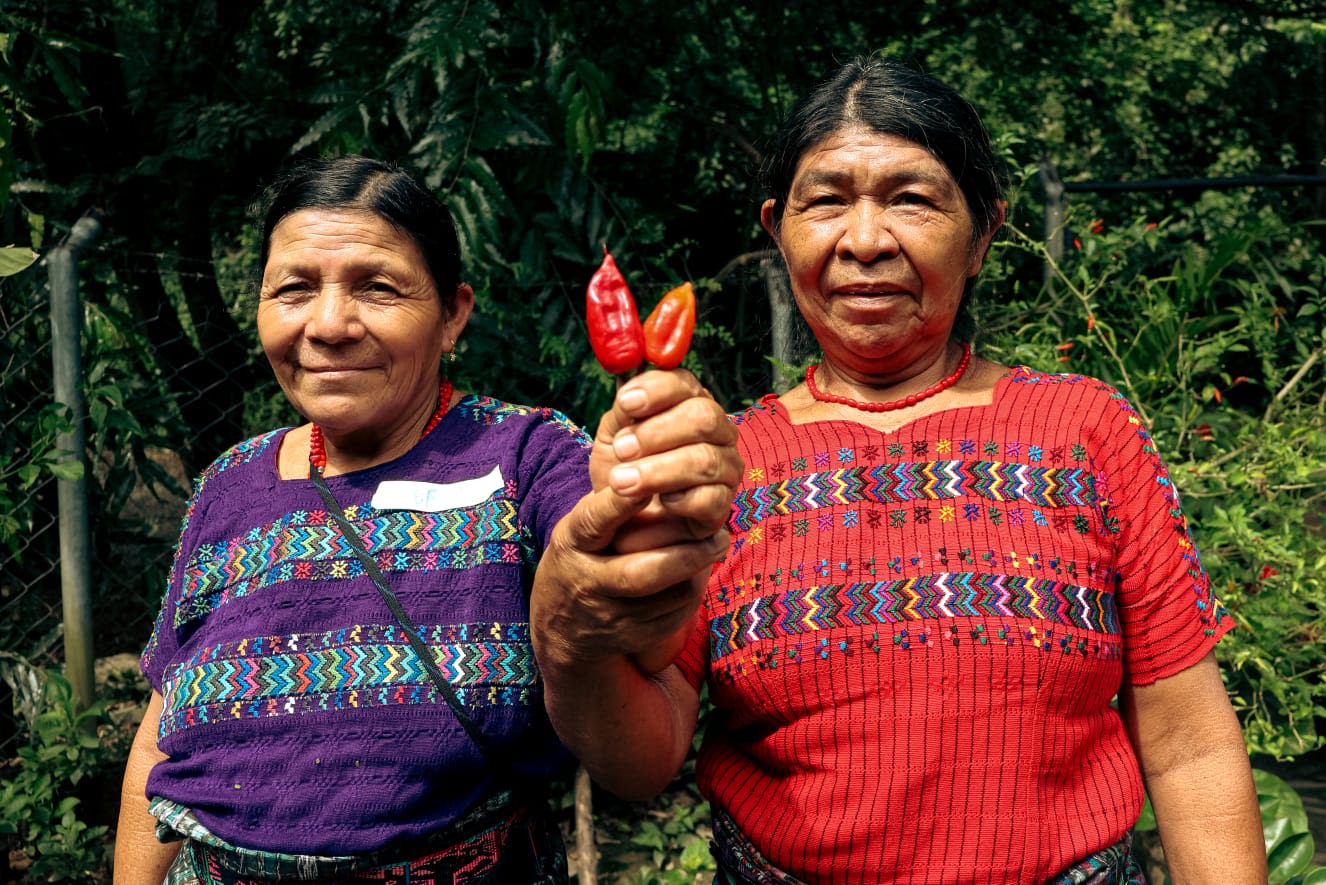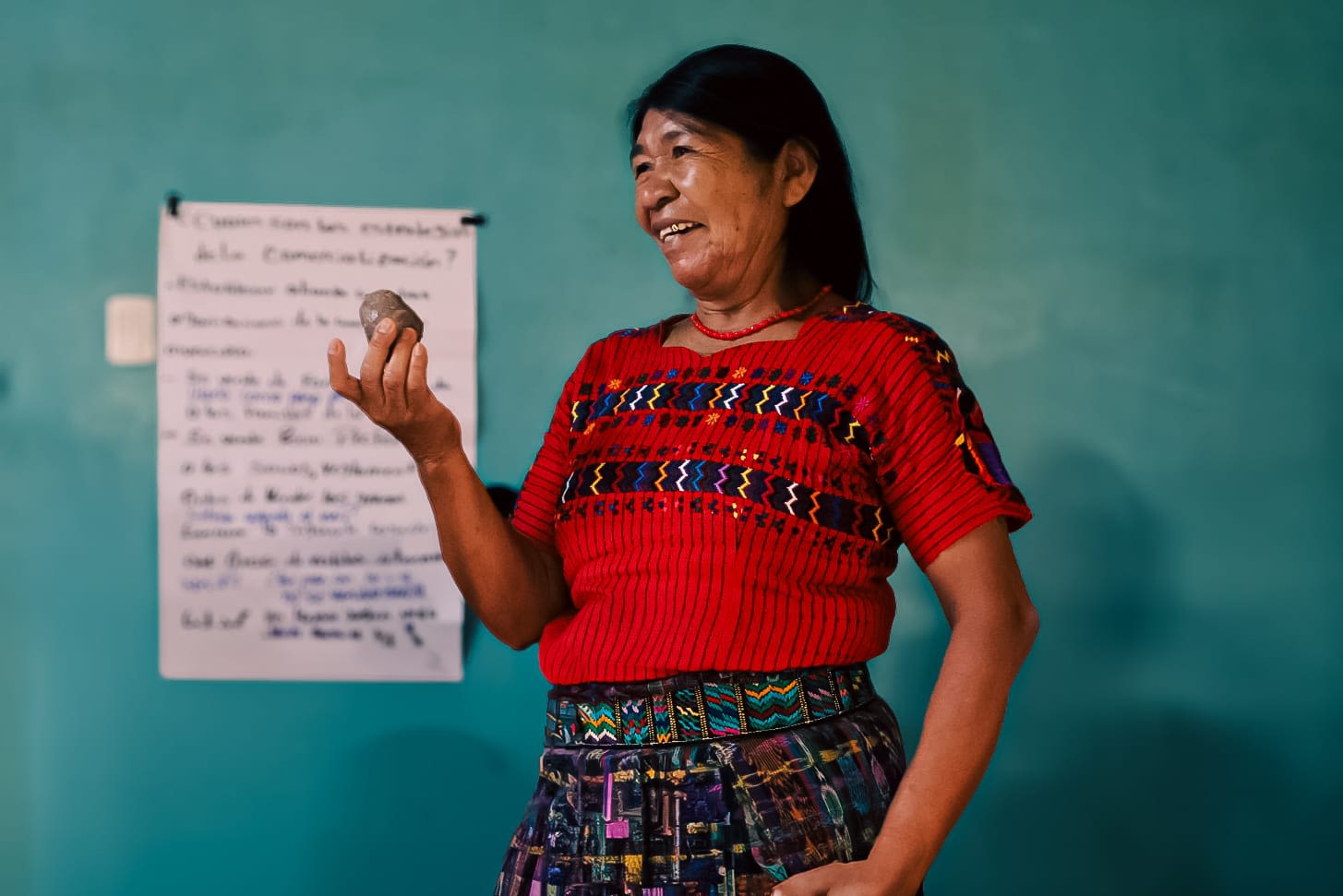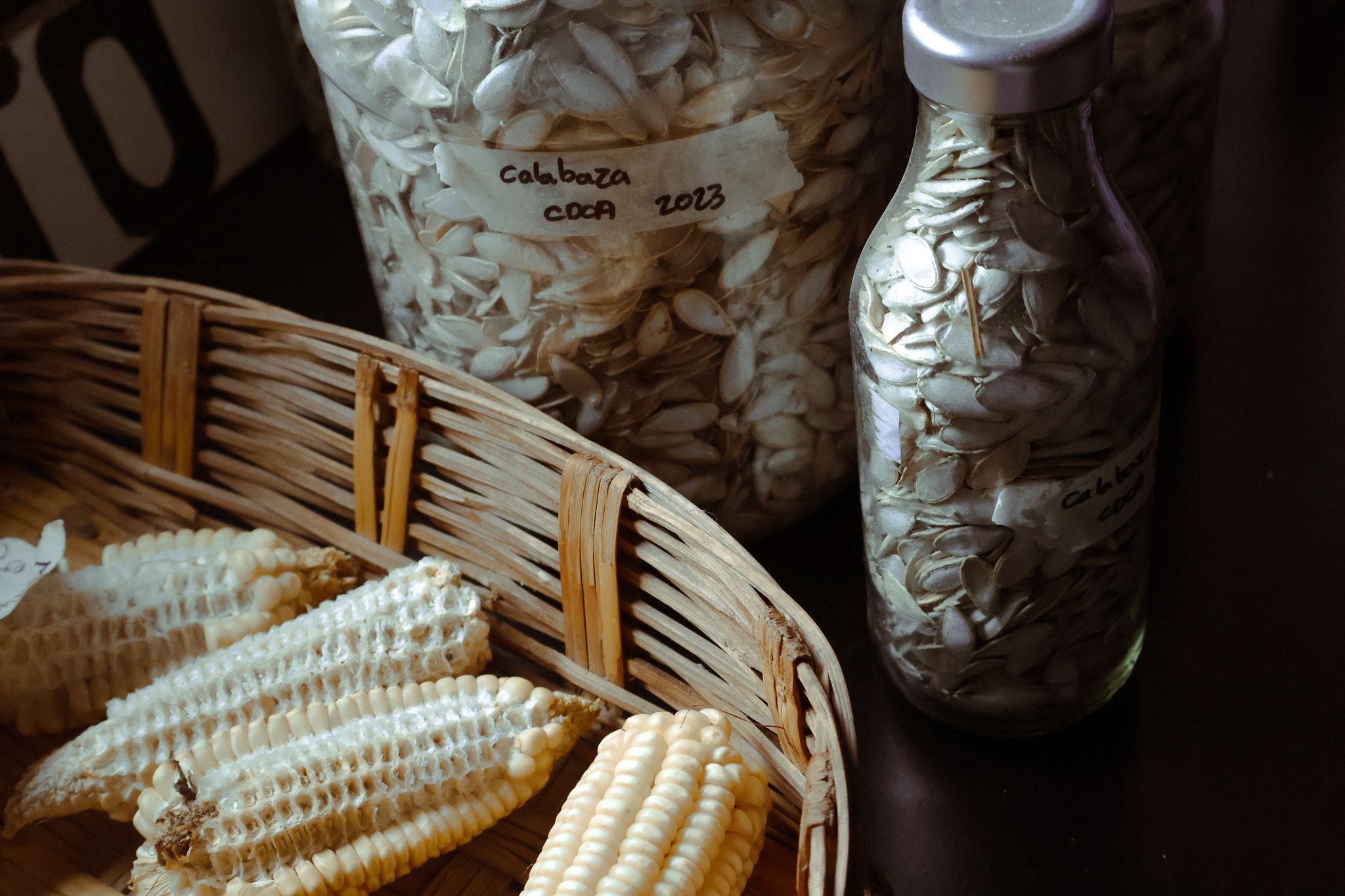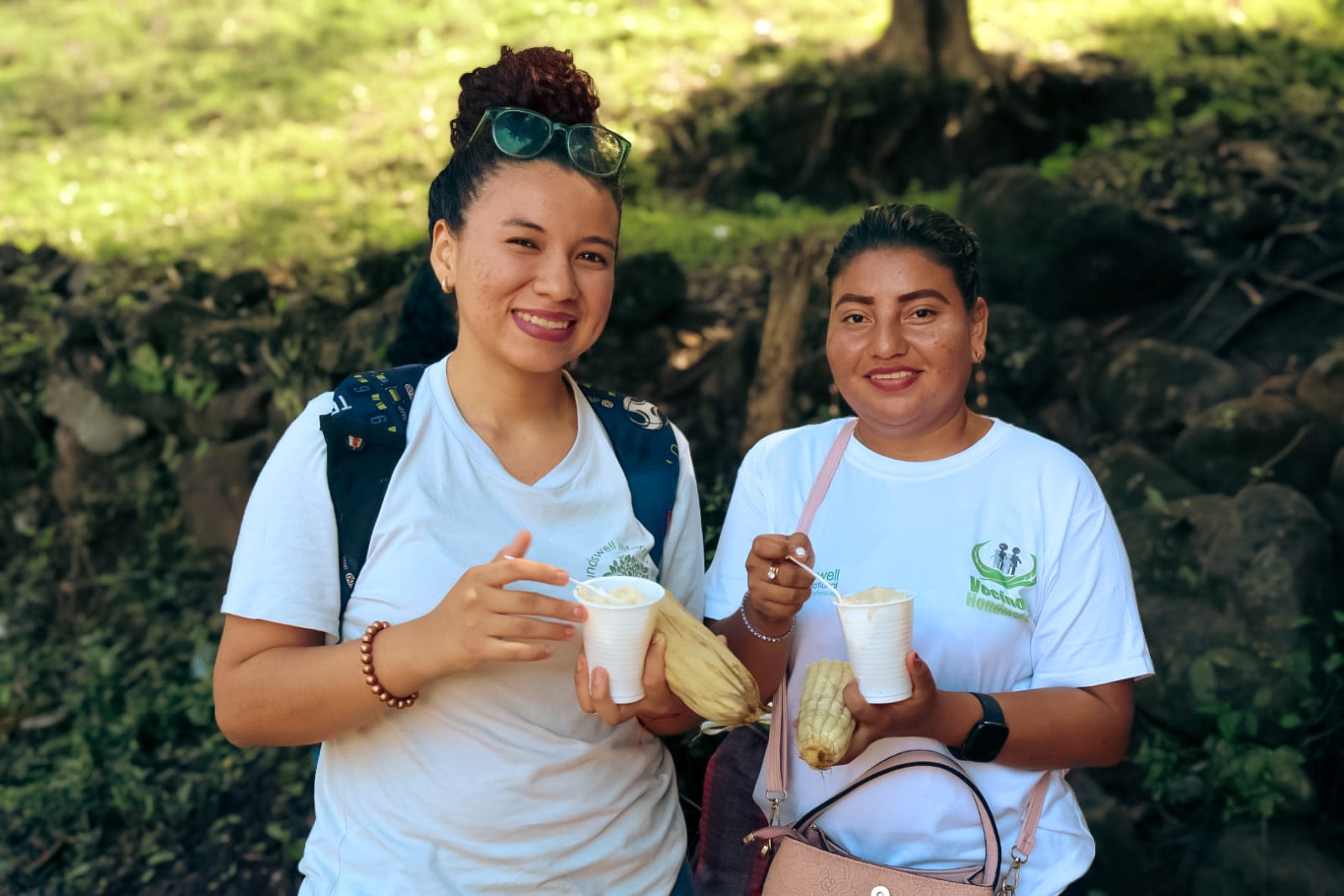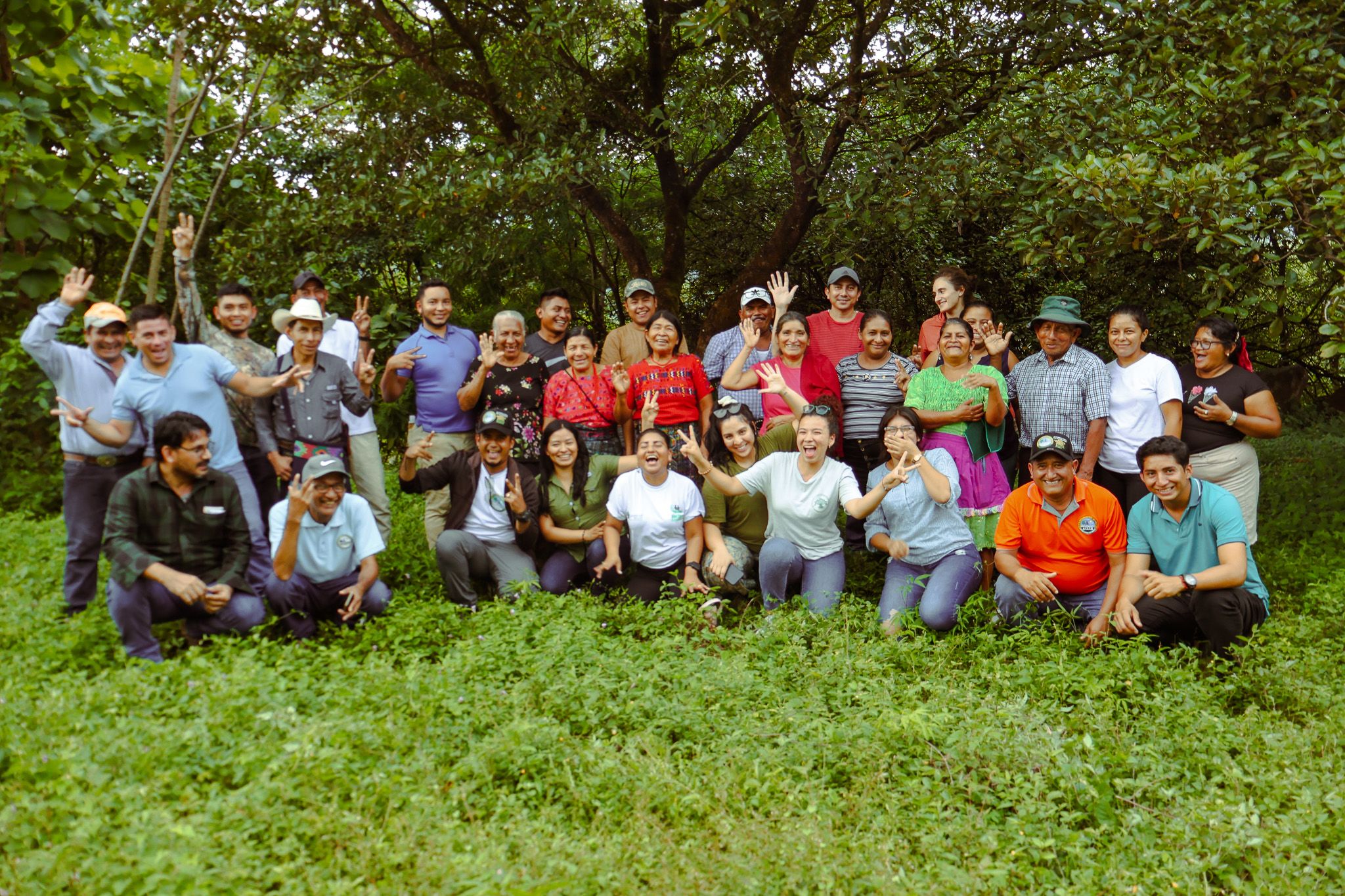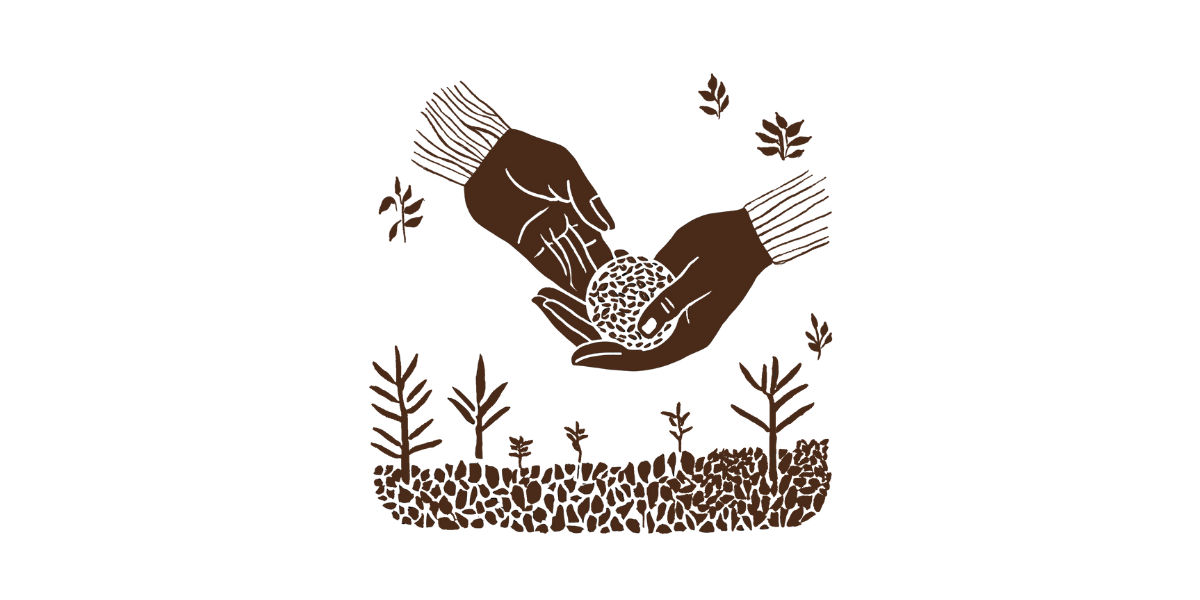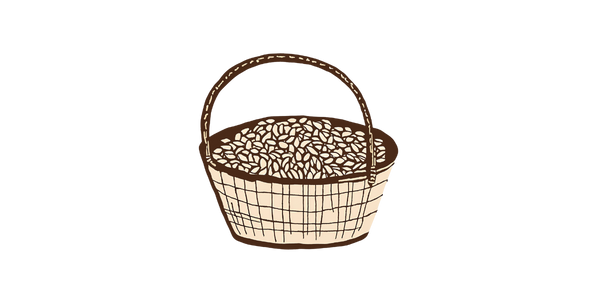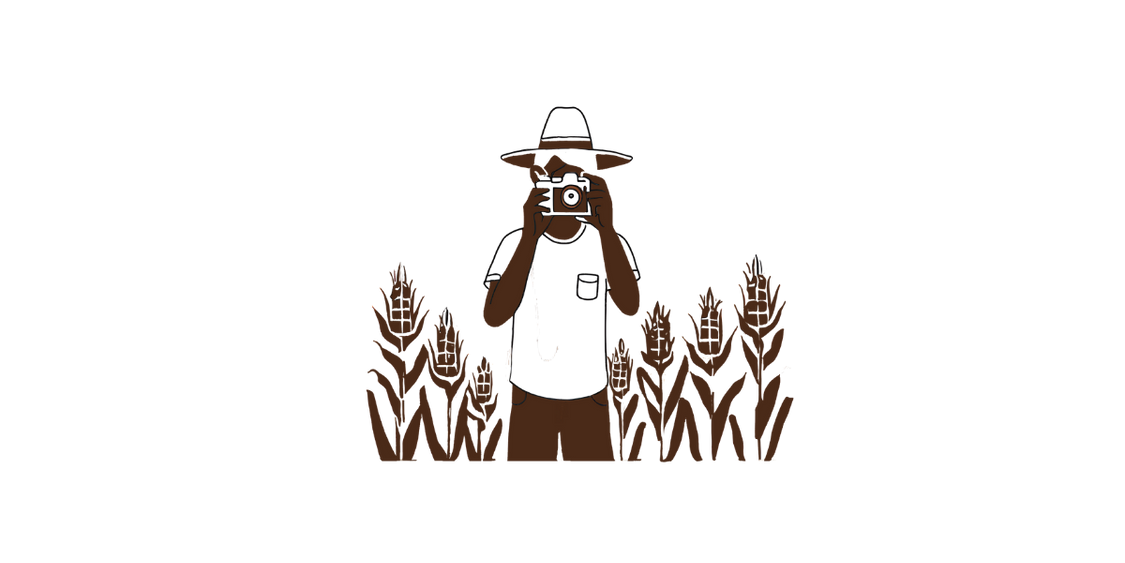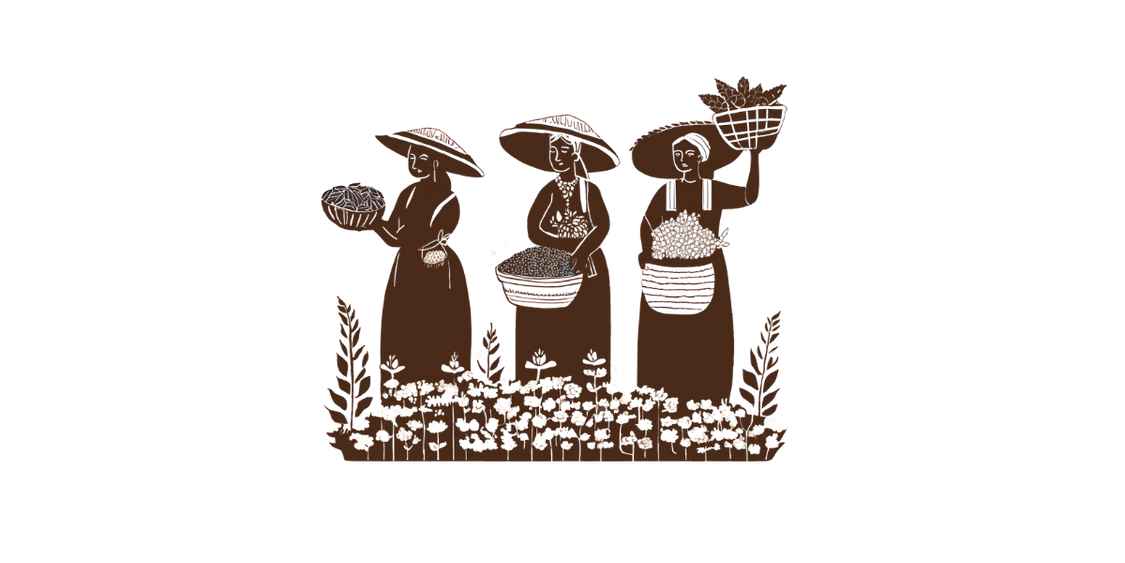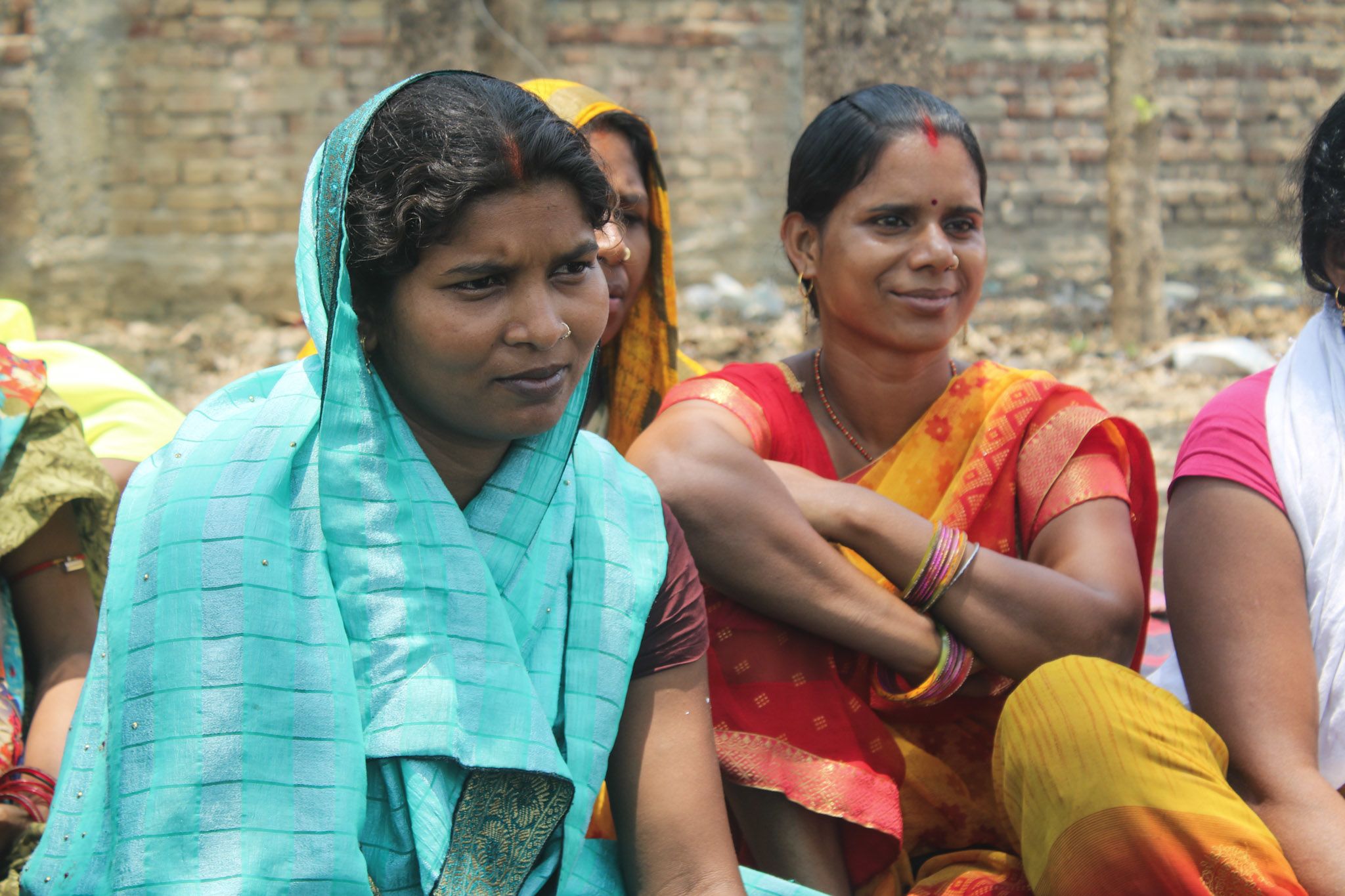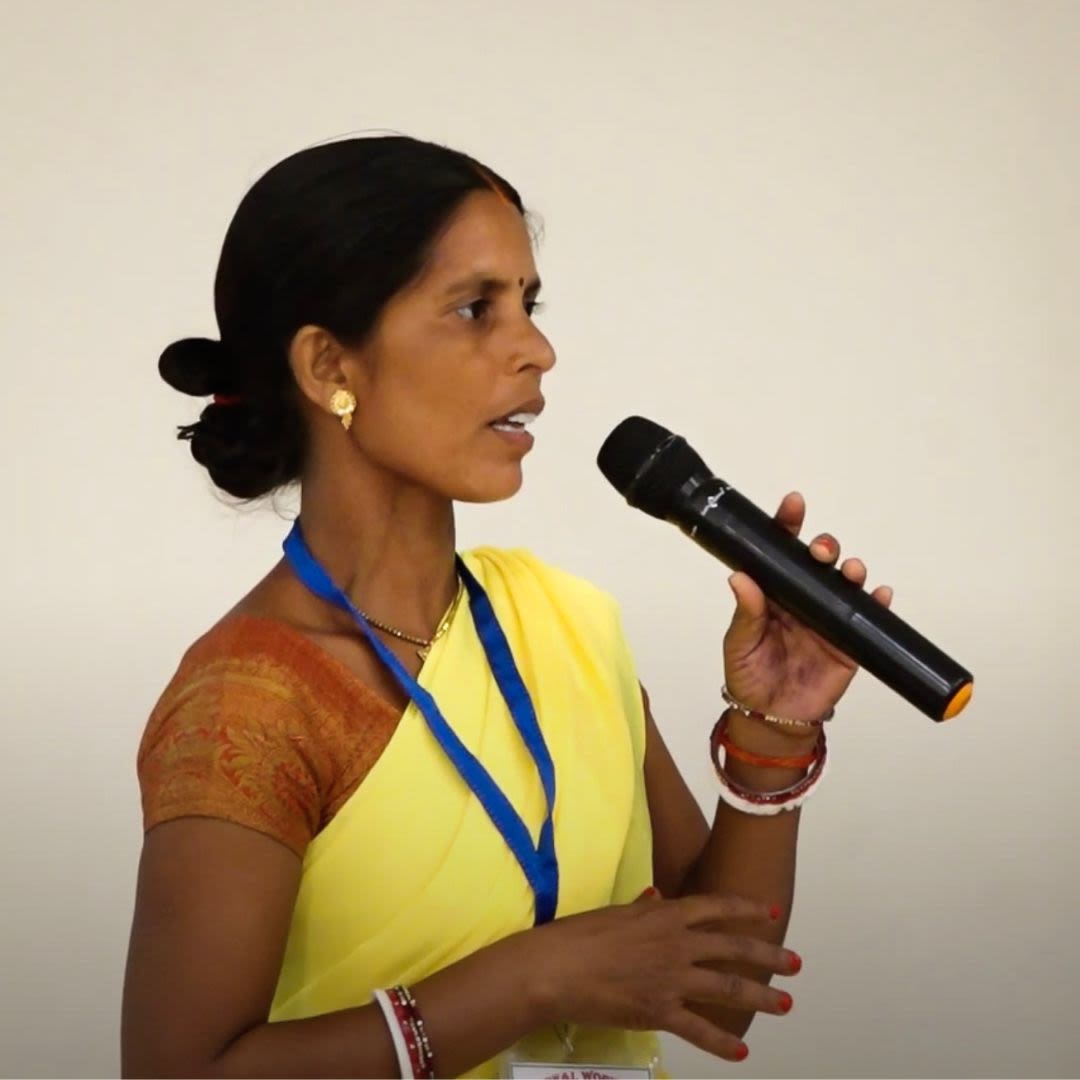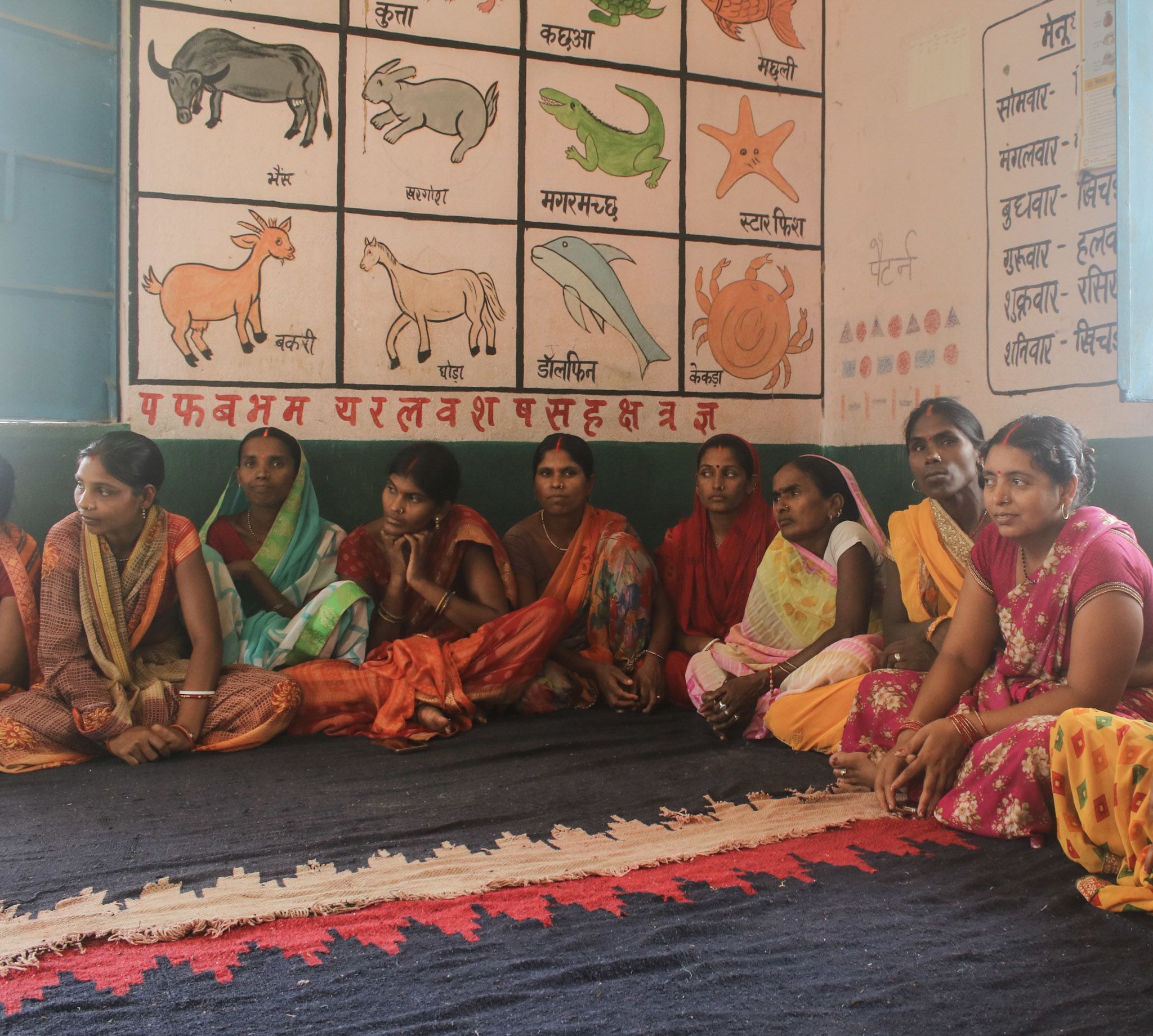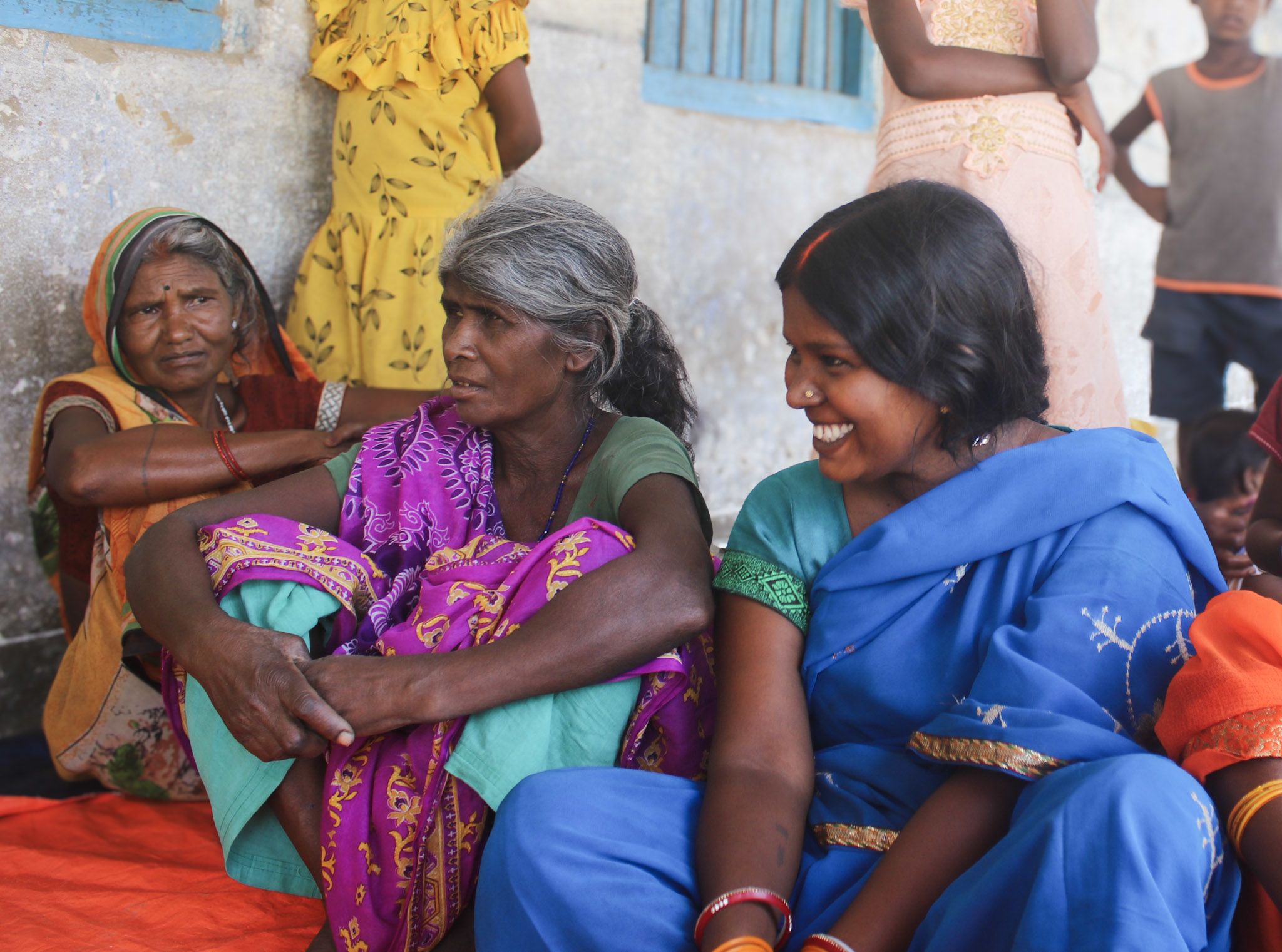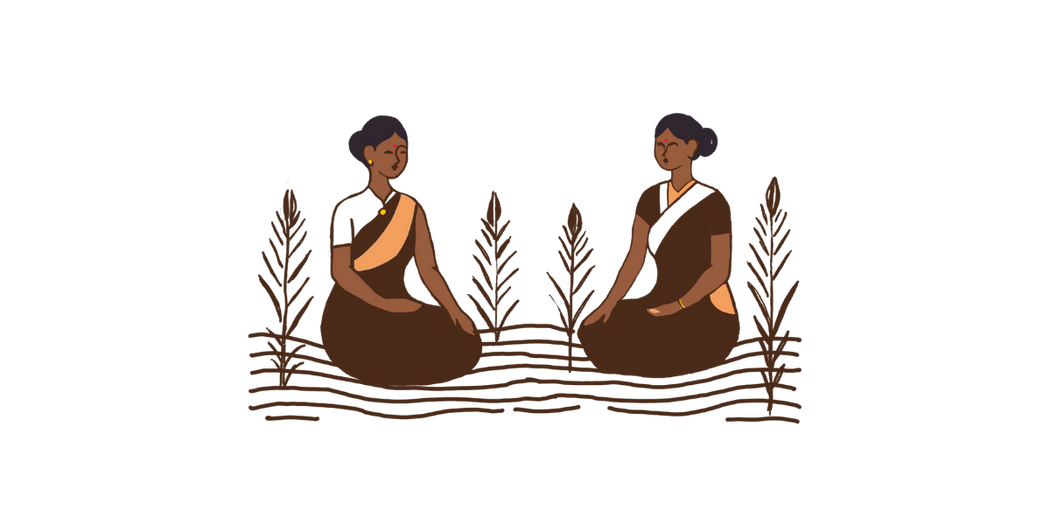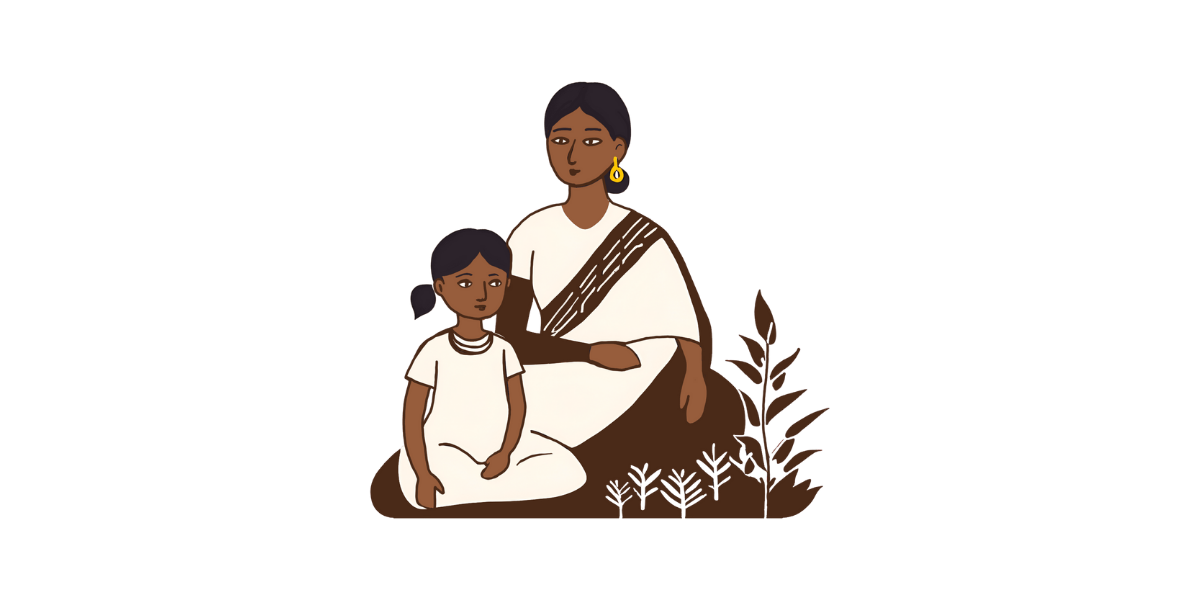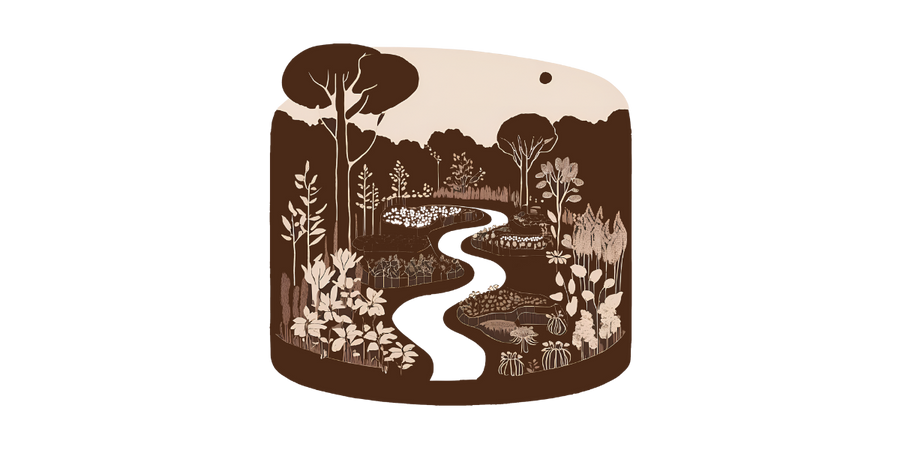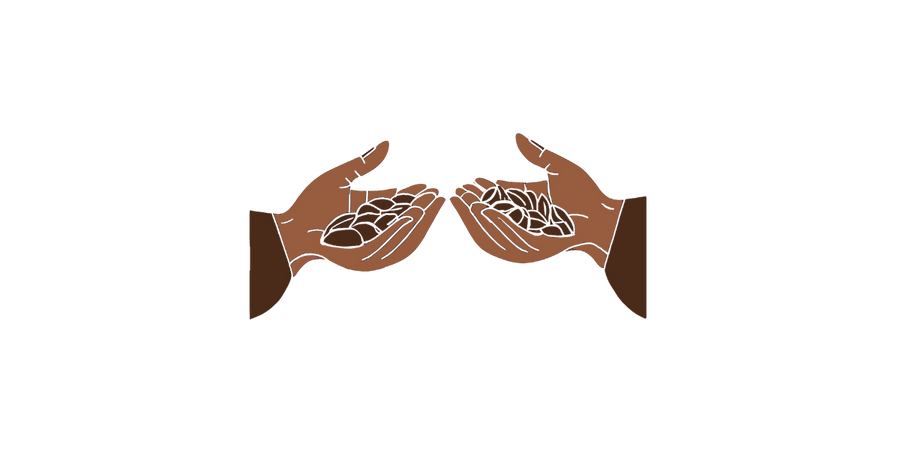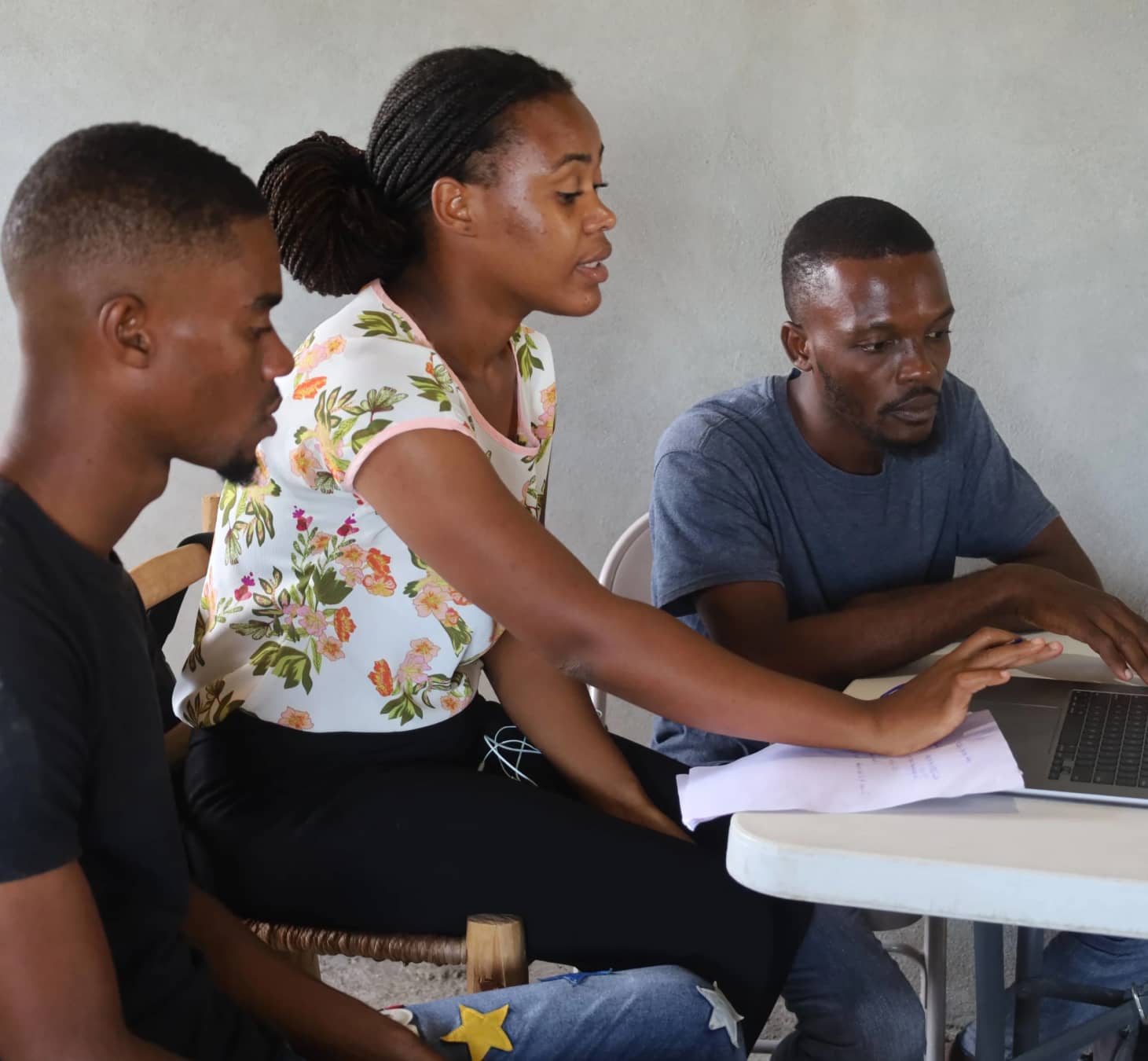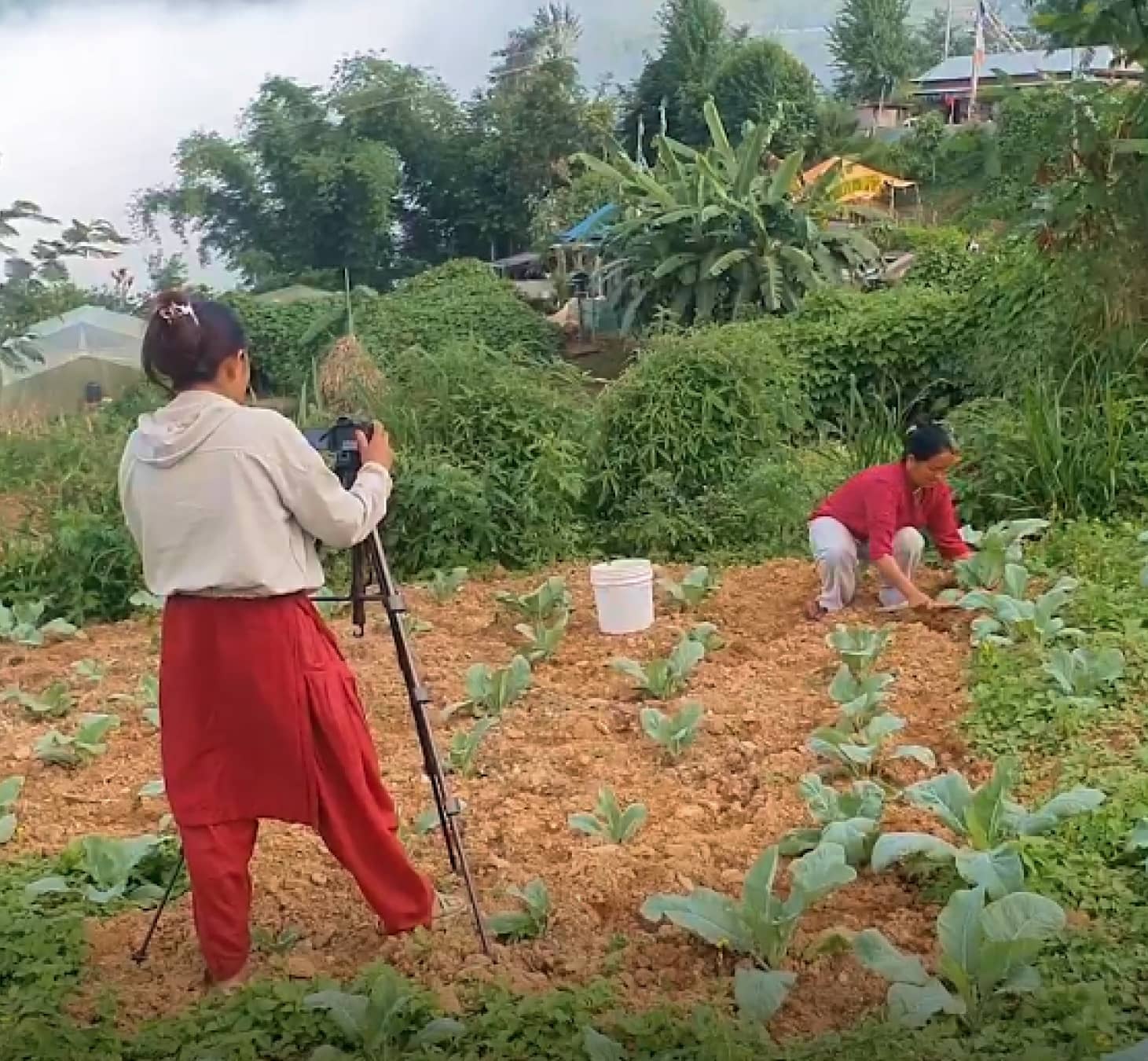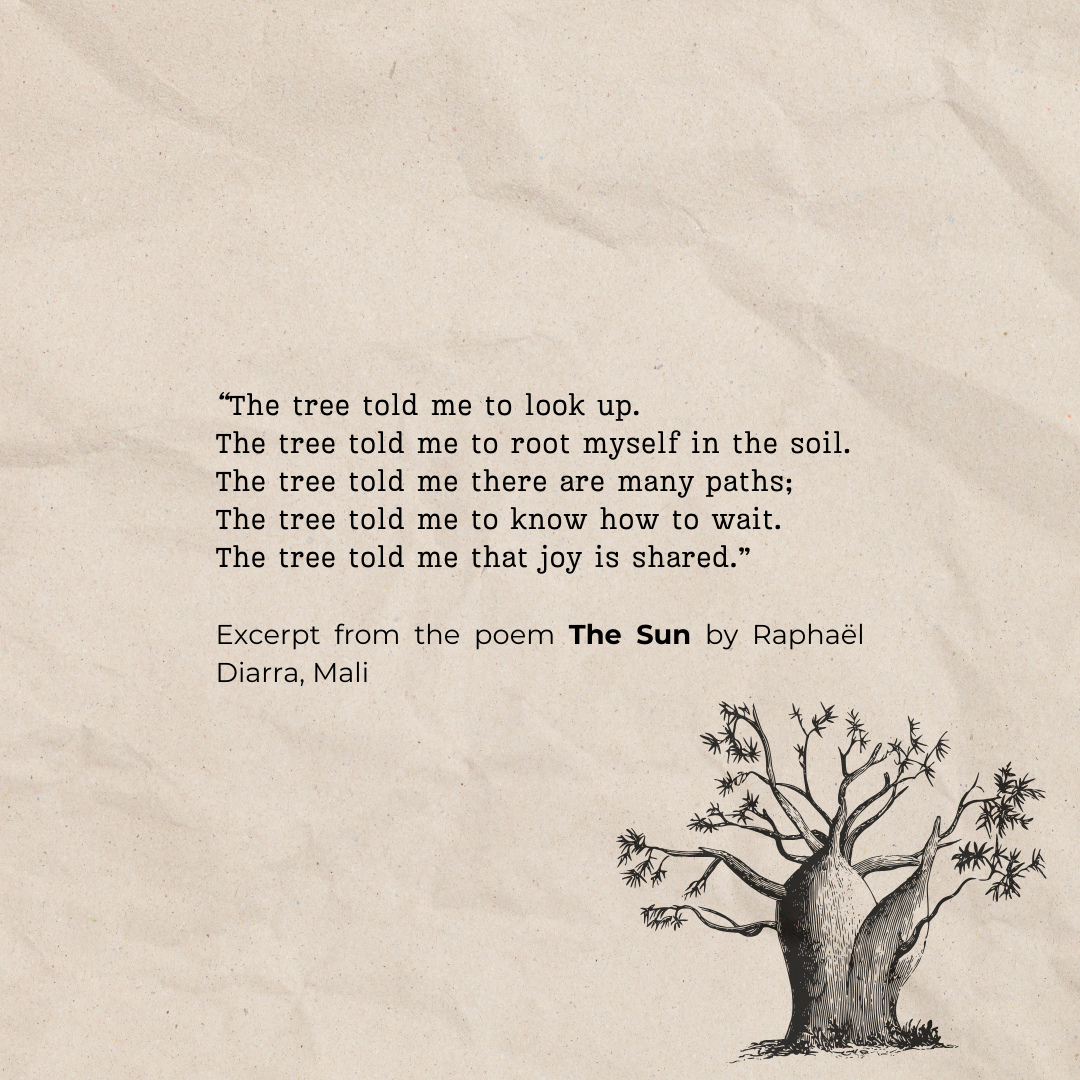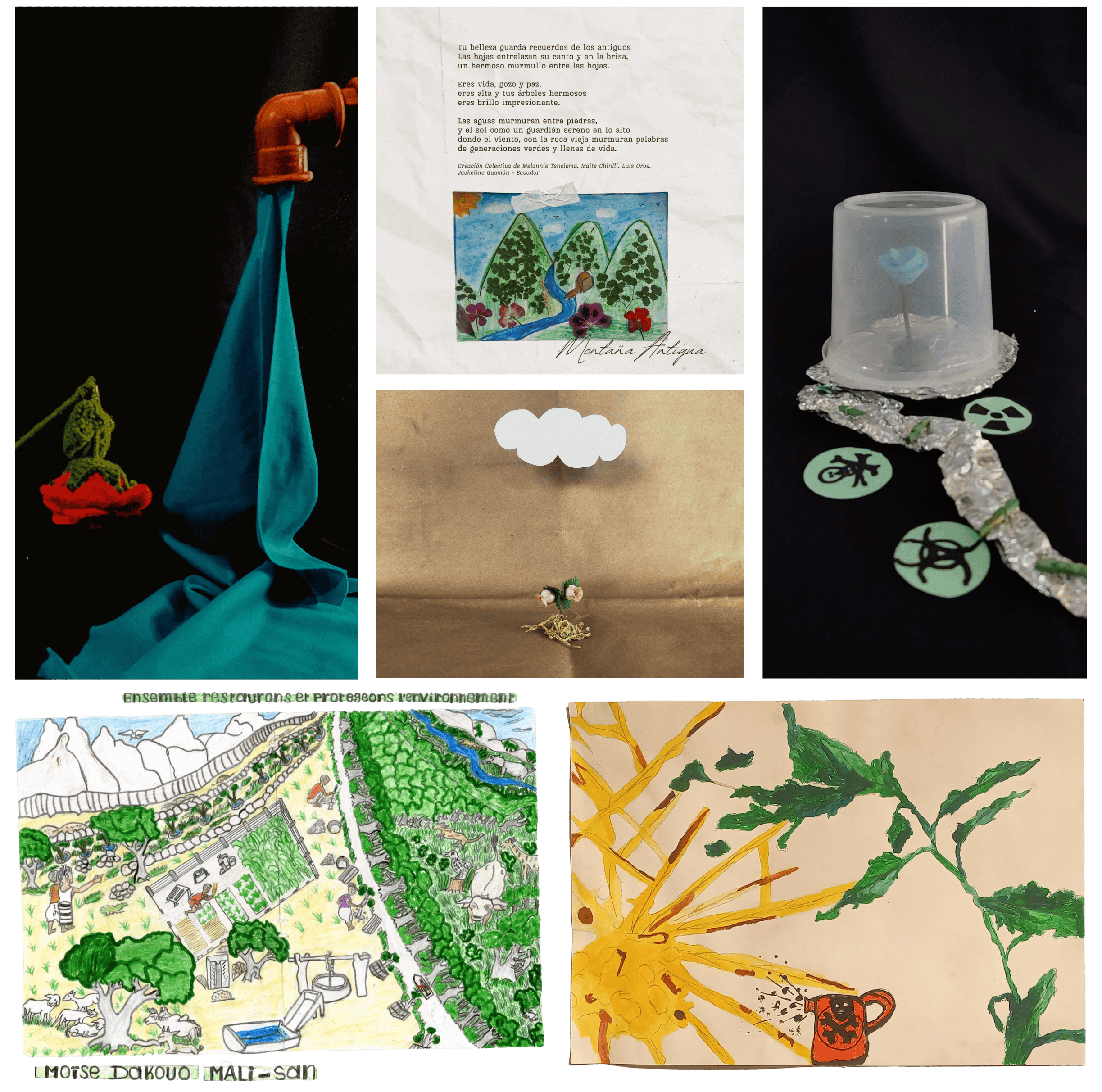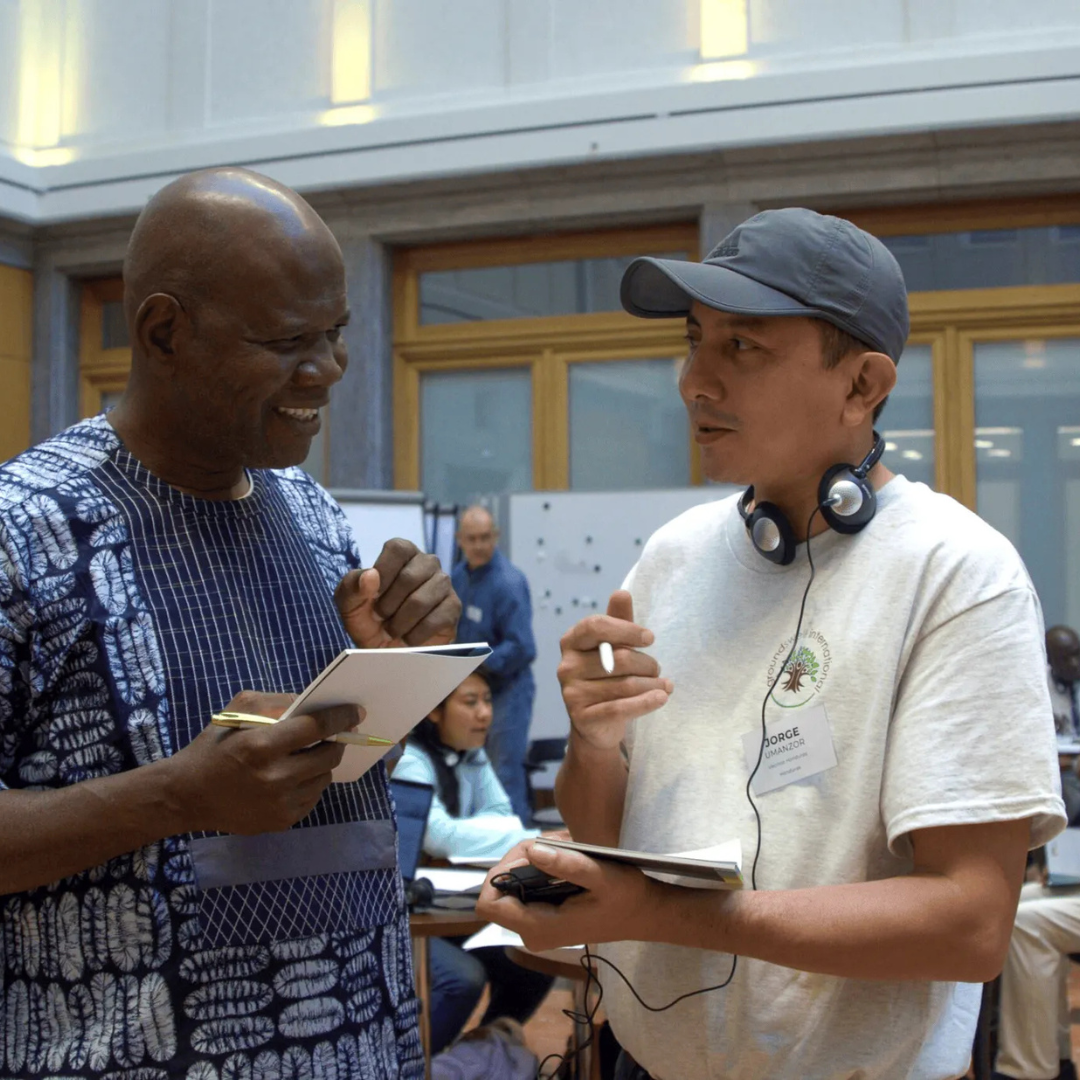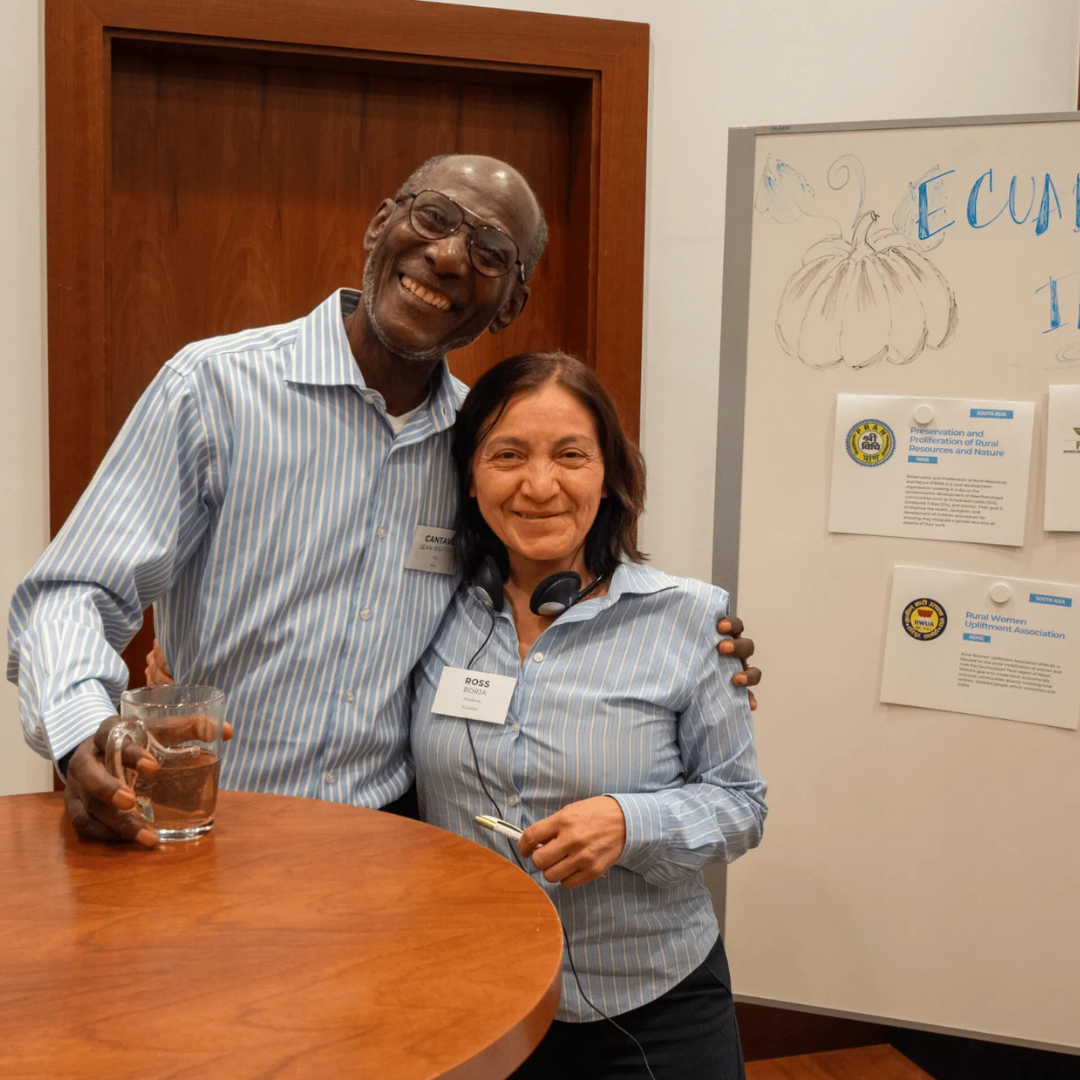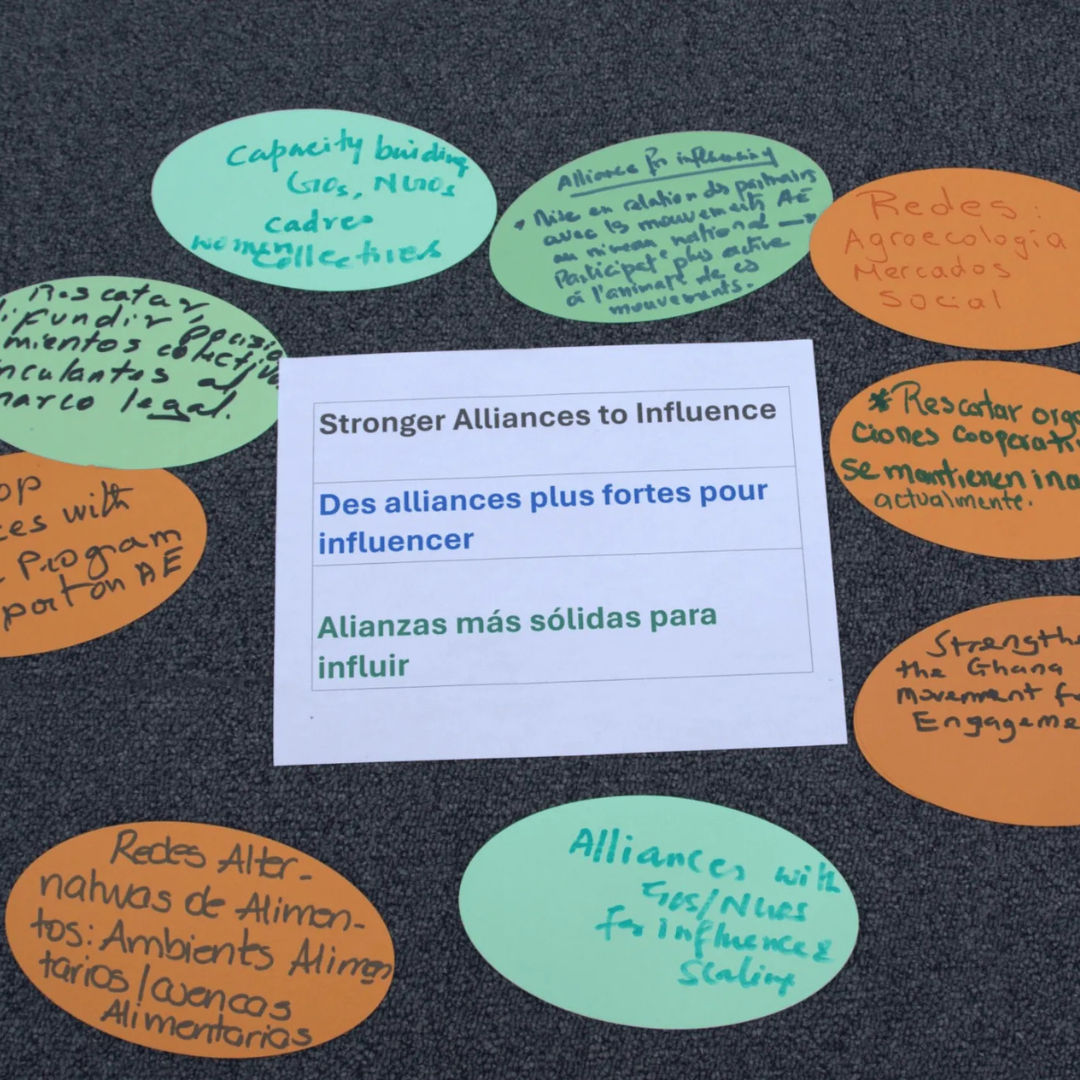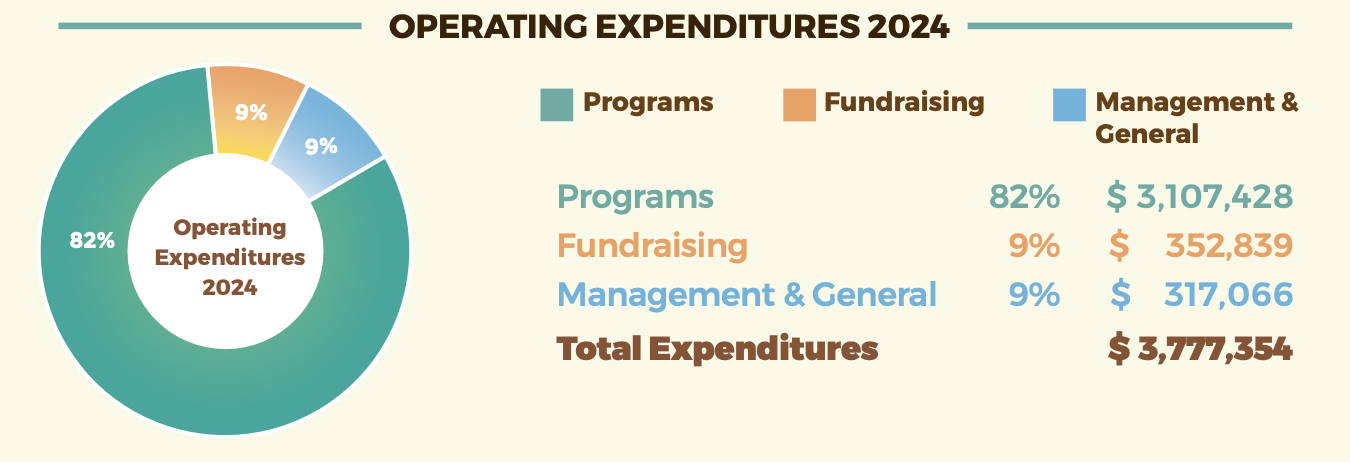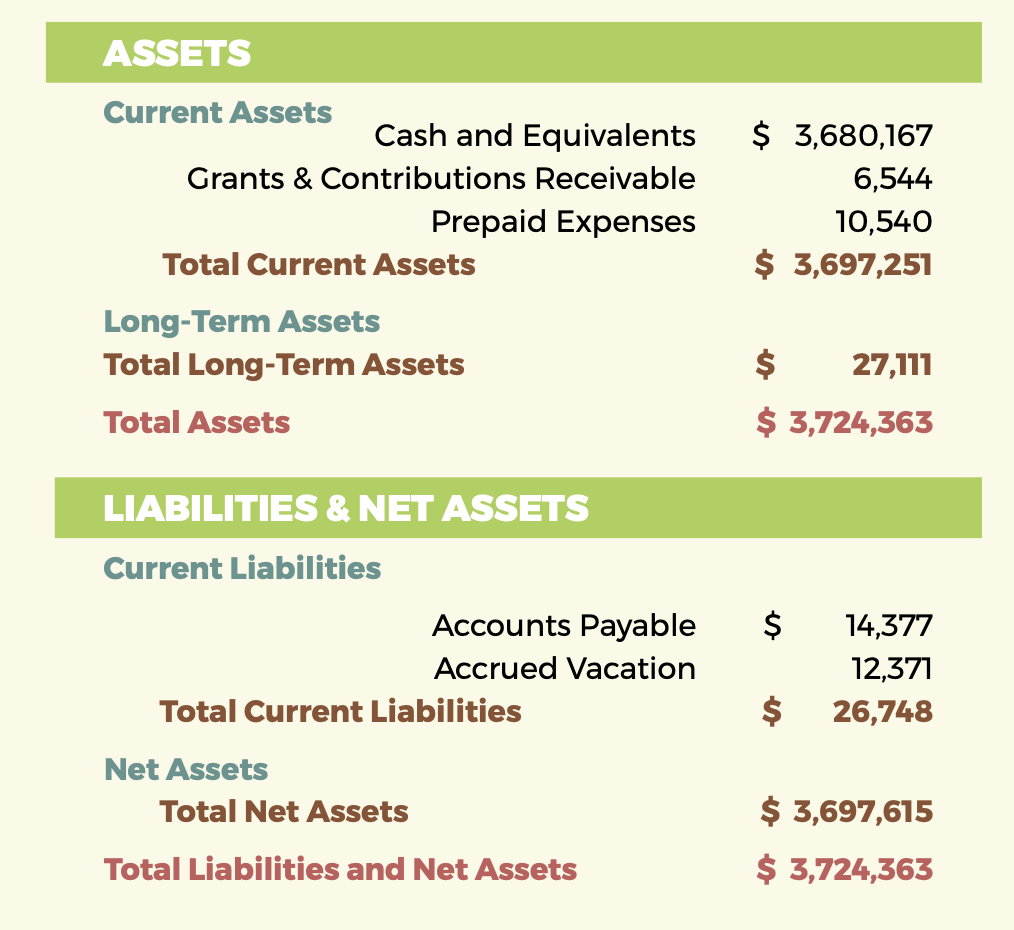A Farmer-Led Transition
How Smallholder Farmers Are Regenerating Land, Livelihoods, and Food Systems Through Agroecology
Groundswell International 2024 Annual Report
scroll down
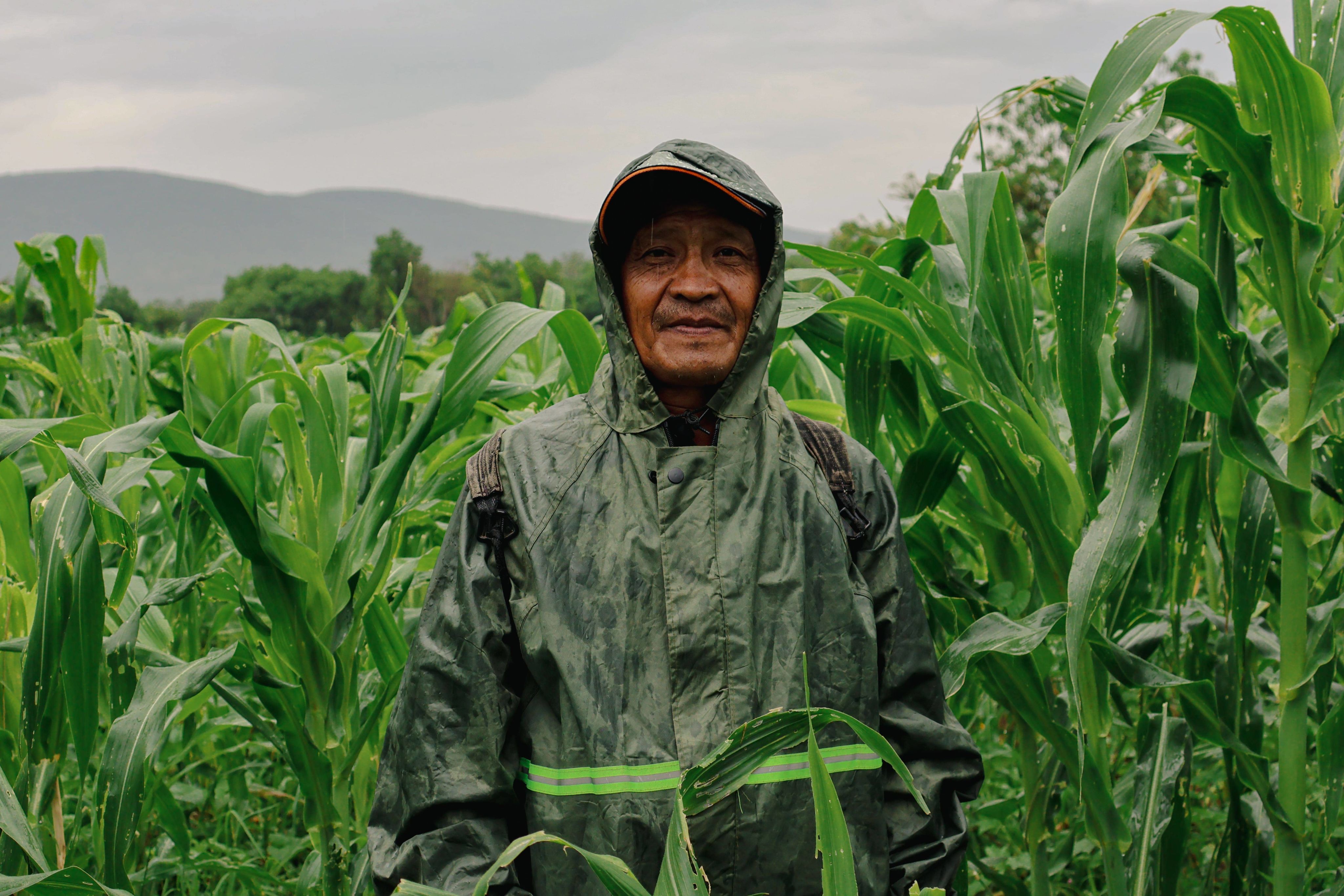
The world is at a turning point. It is painful and disorienting to experience how the forces of division, predation, and authoritarianism are surging in the US and globally. The impacts are profound—especially for the communities that Groundswell International and our local NGO partners work with in West Africa, the Americas, and South Asia.
Who will define this uncertain future, and what will it look like?
We believe that it is up to all of us. By working together and learning from those actively building solutions to today's crises, we can help shape a more democratic, just, and regenerative world.
The people Groundswell International works with have long been on the front lines of crisis. As they navigate hunger, systemic injustice, poverty, and climate change, they show us daily how to confront daunting challenges and create hopeful futures. In this 2024 Annual Report, you’ll meet some of them: farmers like Mohammed in Senegal inspiring others to transition to agroecology, communities in the Americas joining forces to strengthen food sovereignty, and women’s groups leading transformative change in South Asia.
Across our program areas, smallholder farmer organizations use common principles to build healthier farming and food systems from the ground up:
- Trust, solidarity, and collective action for the common good.
- Fostering healthy interdependence, on each other and our ecosystems.
- Innovation rooted in Indigenous knowledge, working with nature instead of against it.
- Taking action based on truth, rather than denying realities like climate change.
- Decentralizing power, so economic and political decisions serve people’s shared interests.
- Honoring diversity—of people, cultures, and ecosystems—as the foundation of life.
These principles are not new—and they are not limited to farming. They can guide us towards cultivating solutions to the broader crises we face, creating a more life-giving future for all people and the planet. Our task is to nurture, scale, and defend them. We are honored to walk alongside these communities, and grateful for your partnership in this essential work.
In solidarity,
Steve Brescia,
Executive Director at Groundswell International
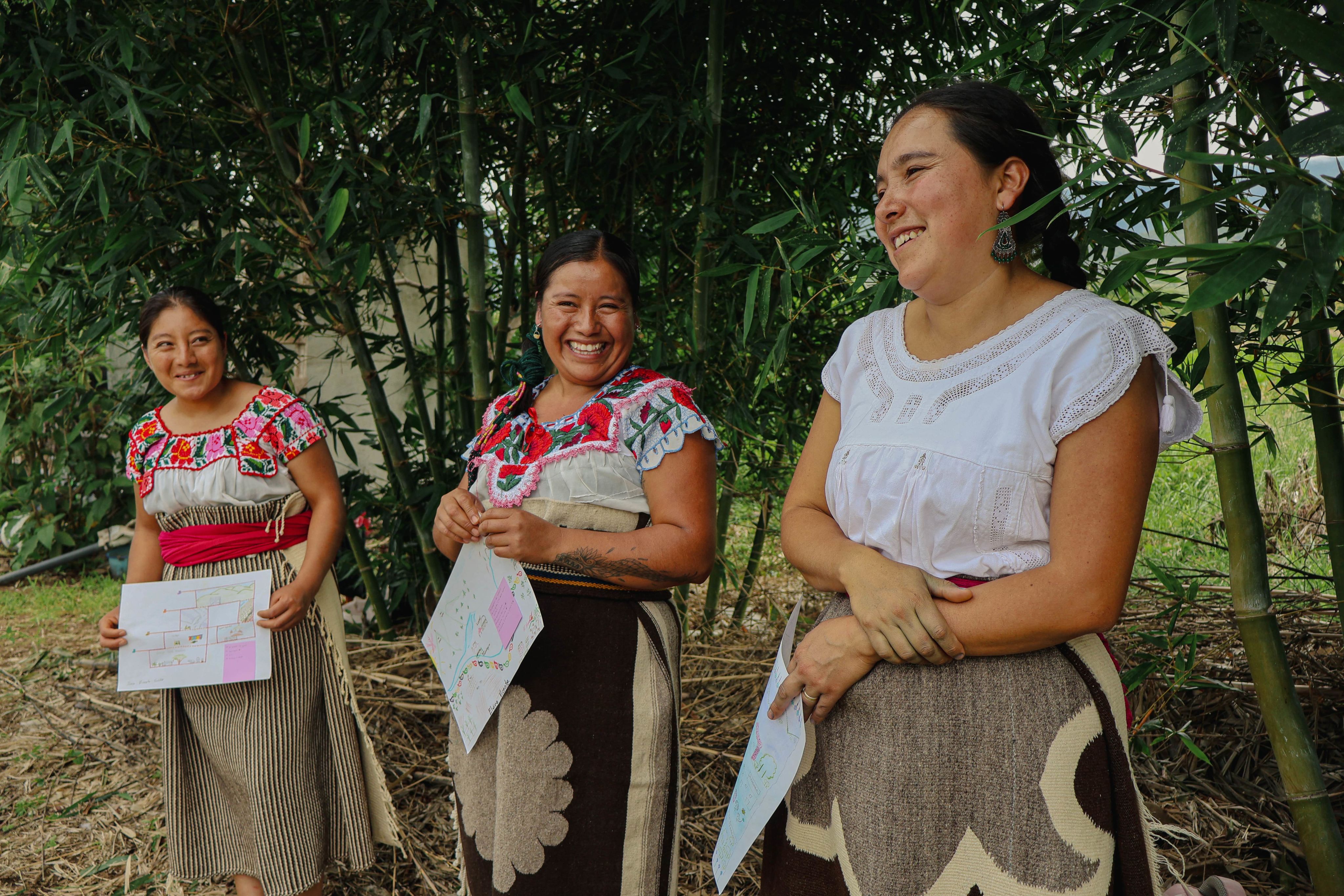
Table of Contents
Scroll down to access chapters, or click the sections in the menu bar above.
1. A Warning Cry
2. Catalyzing Vital Shifts
3. From One Farmer to Many
4. Building Synergy
5. Changing Mindsets
6. Our Global Impact in 2024
7. Moving Ahead
INTRODUCTION
A Warning Cry
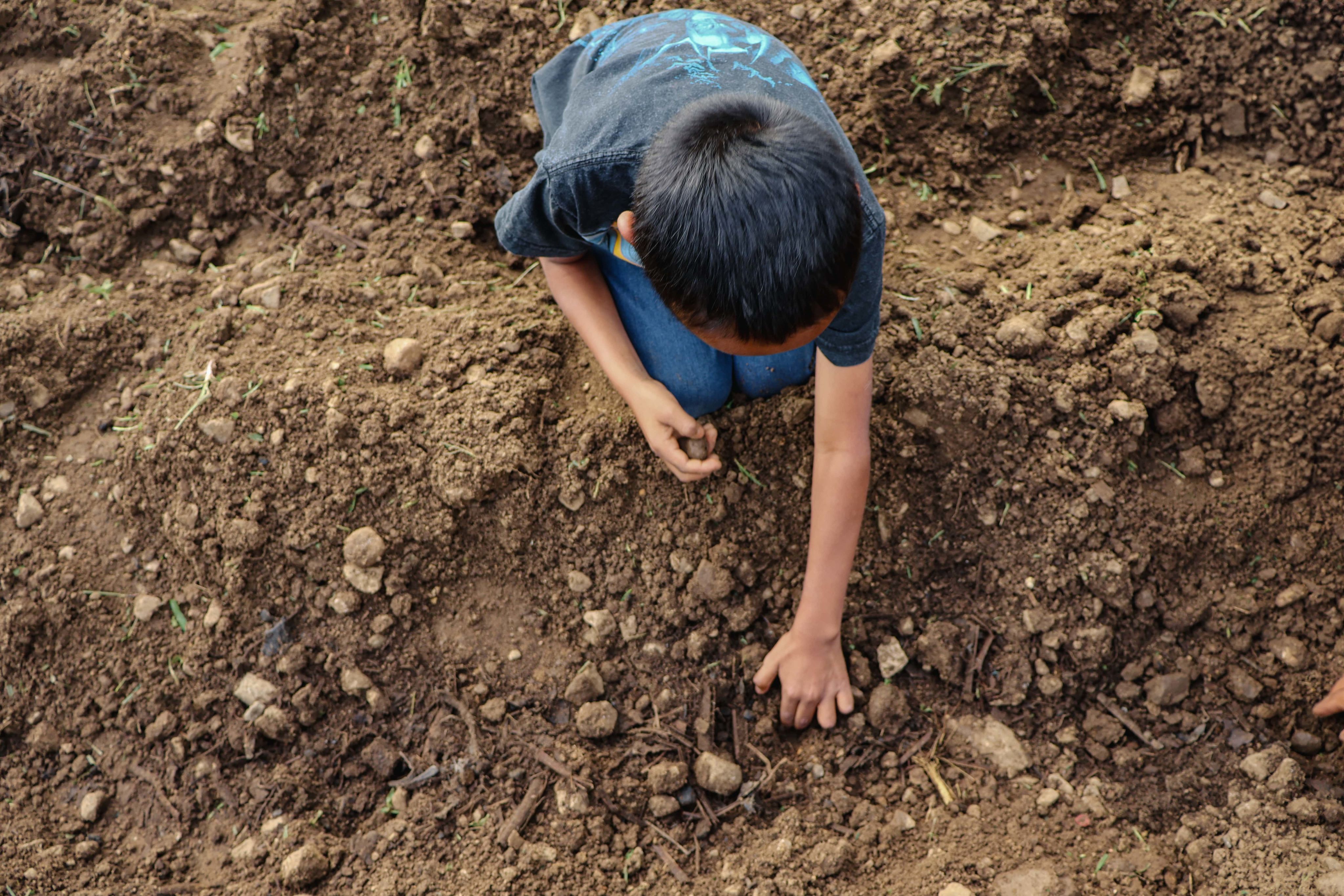

Across regions, farmers face similar crises—depleted soil, failing crops, and dependency on expensive chemicals. But the first step toward change is recognizing the need for a different way forward. And who better than youth to denounce the failures of our current systems and lead humanity towards a better future?
We'd like to start our annual report with this poem written by young people in rural Honduras. It reminds us that our well-being is tied to the air we breathe, the water we drink, and the earth that sustains us, placing agroecology as an essential path forward.
Nature speaks,
its groans are directed at the man who destroys it.
The countryside is sad,
with melancholy on the surface
from the absence of the little birds
whose masterful notes once filled the air,
bringing peace upon hearing their song
that once warmed our hearts.
Those flowers are no longer found,
whose aroma made you feel love, purity,
nor those crops that humans harvested,
and all the beauty that fauna represented.
Each season everything is diminishing,
only dryness, sadness,
hunger and suffering remain.
No more fires,
Would you incinerate your own lungs?
You do it out of greed and ambition.
No more fires and destruction,
otherwise mankind will dig its own grave
and carve its own agony.
You wouldn’t contaminate your blood,
nor cut your veins,
tell me why you do it to her
without remorse and without shame.
Care for the air we breathe as you would for yourself,
every drop of water,
every crop,
every fruit,
every medicinal plant.
It is the sustenance of all human beings
and without nature we are nothing.
She is so beautiful
that I don’t hesitate for a second to see you in her,
she is a temple, she is your home,
care for her and protect her as such.
Written by youth participating in our Youth Storyteller Program: Didier Castillo, Enita Juarez, Heydi Varela, with our local partner ACESH in Honduras. Translated from Spanish.
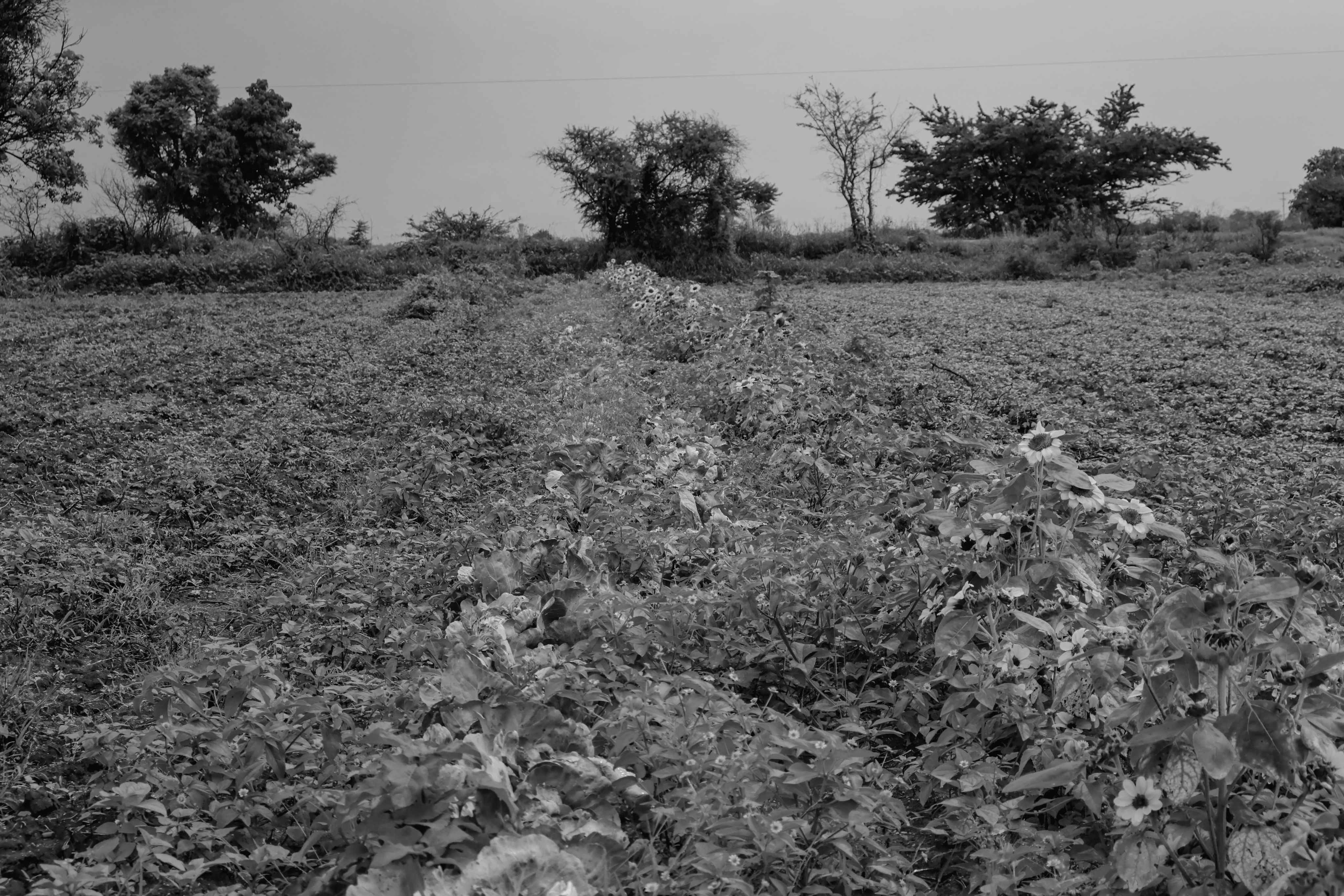
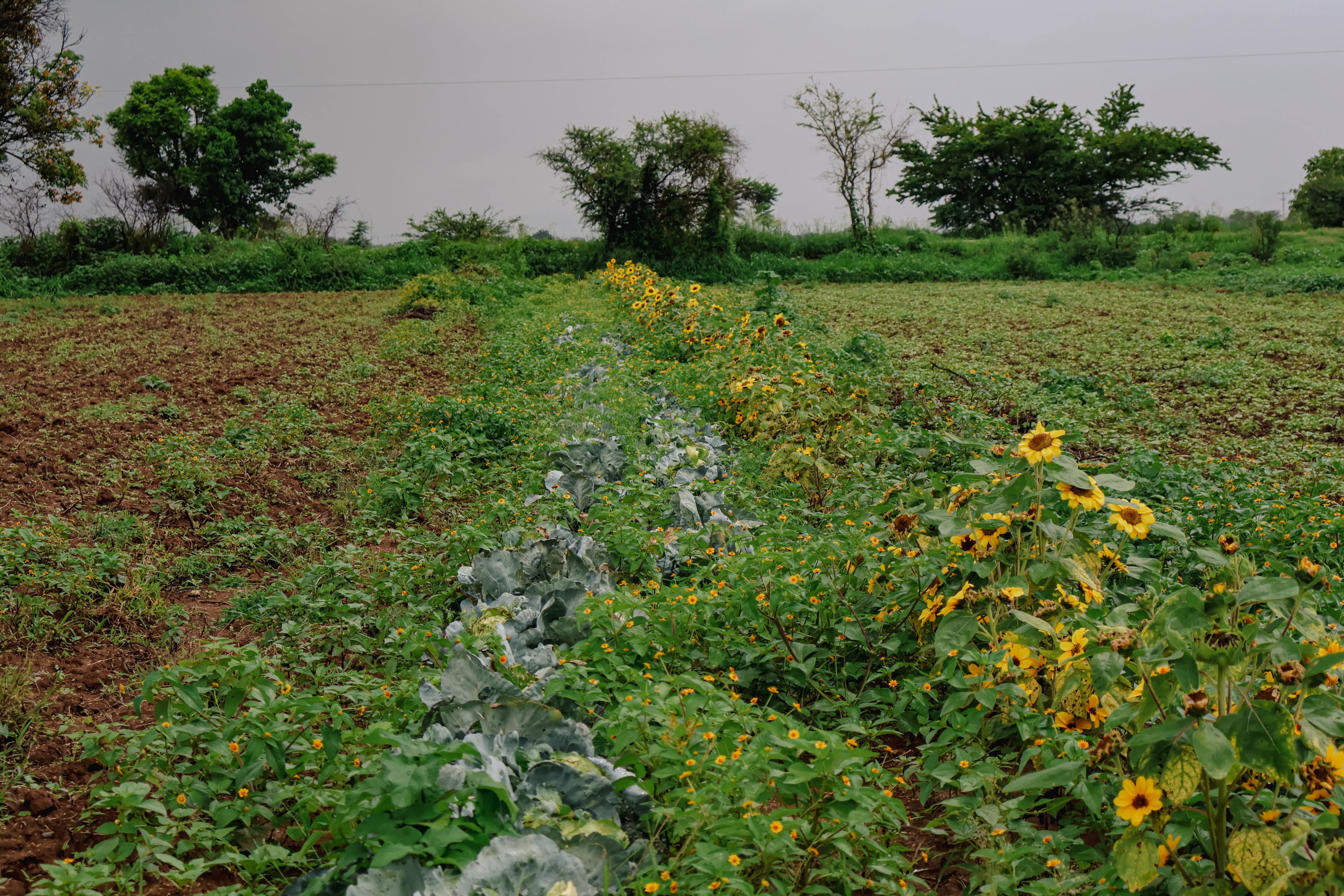
Catalyzing Vital Shifts
CATALYZING VITAL SHIFTS
From Chemical Farming to Agroecological Model Farm
Thiès, Senegal. The country's third largest city resembles a mini-Dakar: narrow streets of cement and unfinished buildings buzz with street vendors, unlicensed motorcycles, and corner cafés mainly selling Western food. While Dakar's coastline enjoys a fresh sea breeze in the dry season, Thiès is engulfed in crushing heat that tastes like sand and smells like gasoline. But weather aside, the area is a marketplace of innovation and ideas, and a testing ground regenerative farming methods like agroecology, the region being one of the country's top producers of groundnuts.
Beyond its bustling streets, the surrounding farms and communities face mounting challenges. The land stretches dry and exhausted, battered by years of chemical fertilizer use that promised high yields but left the soil less fertile and less able to retain water. Harvests have become more vulnerable to the torrential rains of l'hivernage—the rainy season in Senegal that stretches from June to September. At the same time, changing and unpredictable weather worsens dry spells and makes farming increasingly difficult.
For years, Mohammed followed the conventional path. He relied on synthetic fertilizers and pesticides, watching each season demand more costly inputs while delivering less in return, severely impacting his livelihood and ability to support his family.
Things changed when he met with Agrecol Afrique, our local partner in Senegal. Seeing his potential as a producer near the city, they worked with Mohammed to restore his soil and prepare his land to handle downpours of rain as well as periods of intense heat and drought.
Through hands-on training, they introduced agroecological techniques he could adapt to his land and needs. Improved compost replaced synthetic fertilizers. Crop rotation and intercropping gradually restored diversity and soil health. Zai pits helped retain water. Seed coating with biological stimulants—a technique Agrecol Afrique learned through a learning exchange visit organized by Groundswell International to Andhra Pradesh, India in 2023—protected crops and catalyzed soil biology.
The shift wasn't instant, but the results were undeniable. Mohammed's yields stabilized, then grew. His appetite for learning drove his success, as he patiently monitored what worked and adapted his approach to the changing climate.
Today, Mohammed's land is thriving. Rows of cauliflower, onions, and red peppers flourish alongside fruit trees. His income has increased by 40%, thanks to diversified crops and new market connections facilitated by Agrecol Afrique. And his success hasn't gone unnoticed. As he and other ‘champions’ share their experience, more farmers in Thiès are transitioning from conventional farming to agroecology—with his brother and father among the first to follow his lead.
Mohammed's impact goes beyond his farm. He has transformed his land into a model farm—a space where agronomy students now come to study agroecology. On weekends, he mentors young people, sharing the benefits and challenges of transitioning away from chemicals. A true innovator, he thrives on testing and adapting new techniques and sharing what he has learned with others. In his own words:
"You need three things to succeed when building your first agroecological crop: passion, patience, and objectives."
Images 1, 4, and 5 ©Agrecol Afrique
Agroecological Techniques Used by Mohammed: Zai Pits
A zai pit is a traditional farming technique used in agroecology, particularly in arid and semi-arid regions of West Africa. It involves the digging of small, shallow pits, usually about 4-6 inches in diameter and depth, in which seeds are planted. These pits are designed to capture and concentrate rainfall and runoff, which helps to improve soil moisture and fertility in otherwise dry and degraded soils.
How to make a zai pit. Illustration adapted from Marie-Liesse Vermerre, Roose & Rodriguez, 1990
How to make a zai pit. Illustration adapted from Marie-Liesse Vermerre, Roose & Rodriguez, 1990
Learnings Crossing Borders
Mohammed is one of the first farmers to experiment with seed coating in Thiès. But how did this technique reach his farm?
Agrecol Afrique's director, Assane, discovered the seed coating technique during a learning exchange visit in Andhra Pradesh, India organized by Groundswell International. The purpose of the visit was to learn from our South Asian allies, and Assane was impressed by the results he observed in the communities he visited with our team.
He recognized that Senegal faced similar challenges and conditions as those in India. Seeing the potential of this technique for the communities he supports back home, Assane worked closely with Mohammed to adapt the method to Senegal’s local context and Mohammed’s needs. In just three months after implementing the new technique, they began to see positive results on crop resistance to pests and resilience to drought and torrential rain.
With these results as visual proof, Agrecol Afrique tested the seed coating technique with three other independent producers and plans to spread the practice to more communities this year.
"This action-learning between farmers, communities, countries, and regions is a prime example of how Groundswell International's network catalyzes ground up innovation to improve lives."
2024 IMPACT IN SENEGAL
AGRECOL AFRIQUE
538 farmers adopted agroecological practices
300 women's savings and credit groups strengthened financial resilience for women
150 small producer households diversified their agriculture by increasing crop variety and consuming nutrient-rich foods
50 households created new enterprises, providing farmers with alternative income sources and greater financial stability
Five community-managed grain and seed reserves provided farmers with secure storage for millet, corn, and cowpea seeds, ensuring seed availability for future planting seasons
Assane Gueye was elected the President of WAfrONet (West African Organic Network) - a coalition of 80 organizations across 15 countries that promotes food sovereignty, sustainable agriculture, and farmers' rights in Africa
From One Farmer to Many
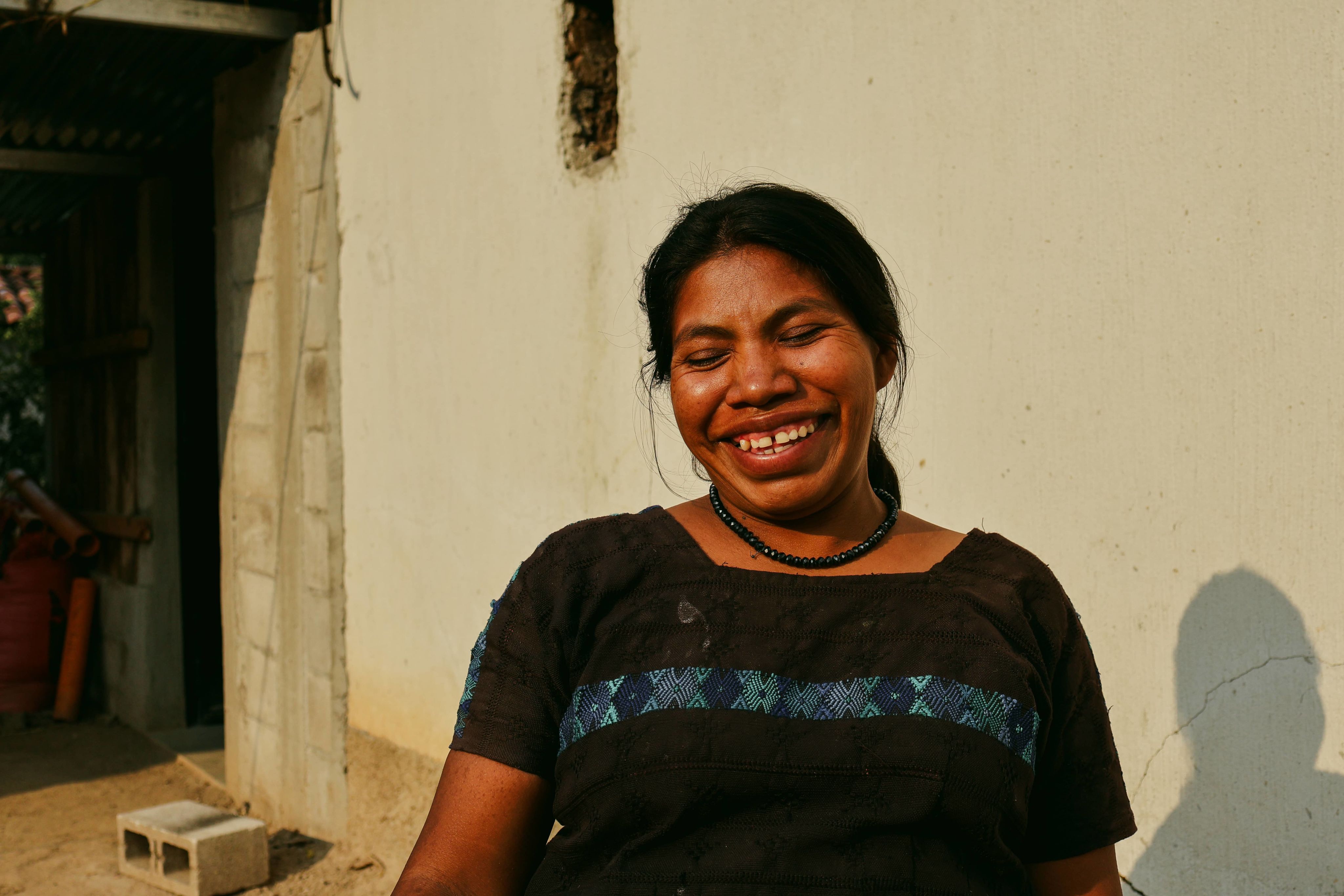
FROM ONE FARMER TO MANY
Community Learning Exchanges for Collective Resilience
As we’ve seen with Mohammed, successful agroecological farmers inspire others to follow their lead. Across our network, we amplify this process with community learning exchanges, which play a pivotal role in connecting farmers from different backgrounds to share knowledge and spread solutions.
In 2024, farmers and community leaders from Guatemala and Honduras gathered during a week-long exchange in southern Honduras to share successful agroecological practices, focusing on solutions to promote food sovereignty in the Dry Corridor.
Organized with our partner Asociación de Comités Ecológicos del Sur de Honduras (ACESH), the exchange welcomed representatives from our other Central American partners—Qachuu Aloom and AGRIDIVI in Guatemala, and Vecinos Honduras—creating a platform for farmers to learn from one another and adapt successful practices to their local contexts.
Key strategies discussed included grain reserves, seed banks, and local market systems, with a strong emphasis on gender equity and women’s leadership as guardians of grain and seeds for food sovereignty. Farmers learned from one another’s experiences, like the use of airtight clay containers and underground storage in Guatemala, which inspired Honduran farmers to improve their own seed-saving practices.
Food sovereignty is essential for ensuring that communities have control over what they grow, eat, and trade—reducing dependence on external markets and industrial supply chains, and protecting cultural traditions and biodiversity.
The exchange also highlighted how local markets and barter systems can play a crucial role in strengthening food security. In Honduras, community-led grain reserves are connected to local markets, allowing farmers to see firsthand how these systems reduce reliance on external supply chains while reinforcing local economies.
Youth played a central role too. Vecinos Honduras presented their mentorship programs, entrepreneurship workshops, and our Youth Storyteller Program—initiatives that help young people stay connected to the land, strengthen local agriculture, and prevent youth migration. Across the network, partners are working together to continue empowering youth to lead agroecology initiatives for their communities.
As climate and economic pressures intensify, our role in nurturing these grassroots initiatives is central to scaling agroecology through cooperation, farmer-led innovation, and community-driven solutions.
Through knowledge exchange and coordinated action, the 223 communities we support in the Dry Corridor are increasingly empowered to sustain, adapt, and expand successful agroecological initiatives to strengthen local food sovereignty, giving them vital alternatives as they navigate the challenges posed by the worsening political climate in the U.S.
2024 IMPACT IN HONDURAS
ACESH & VECINOS HONDURAS
520 farming families adopted agroecological practices
469 smallholder farm households increased their net income from agriculture
33 communities established strategic grain reserves
15 Youth Storytellers used videos and creative storytelling to promote agroecology, reaching 1,294 people
Farmers collectively stored 4,722,081 pounds of grain through nine seed and grain reserves, providing a vital safety net against food shortages for over 150 families
Building Synergy
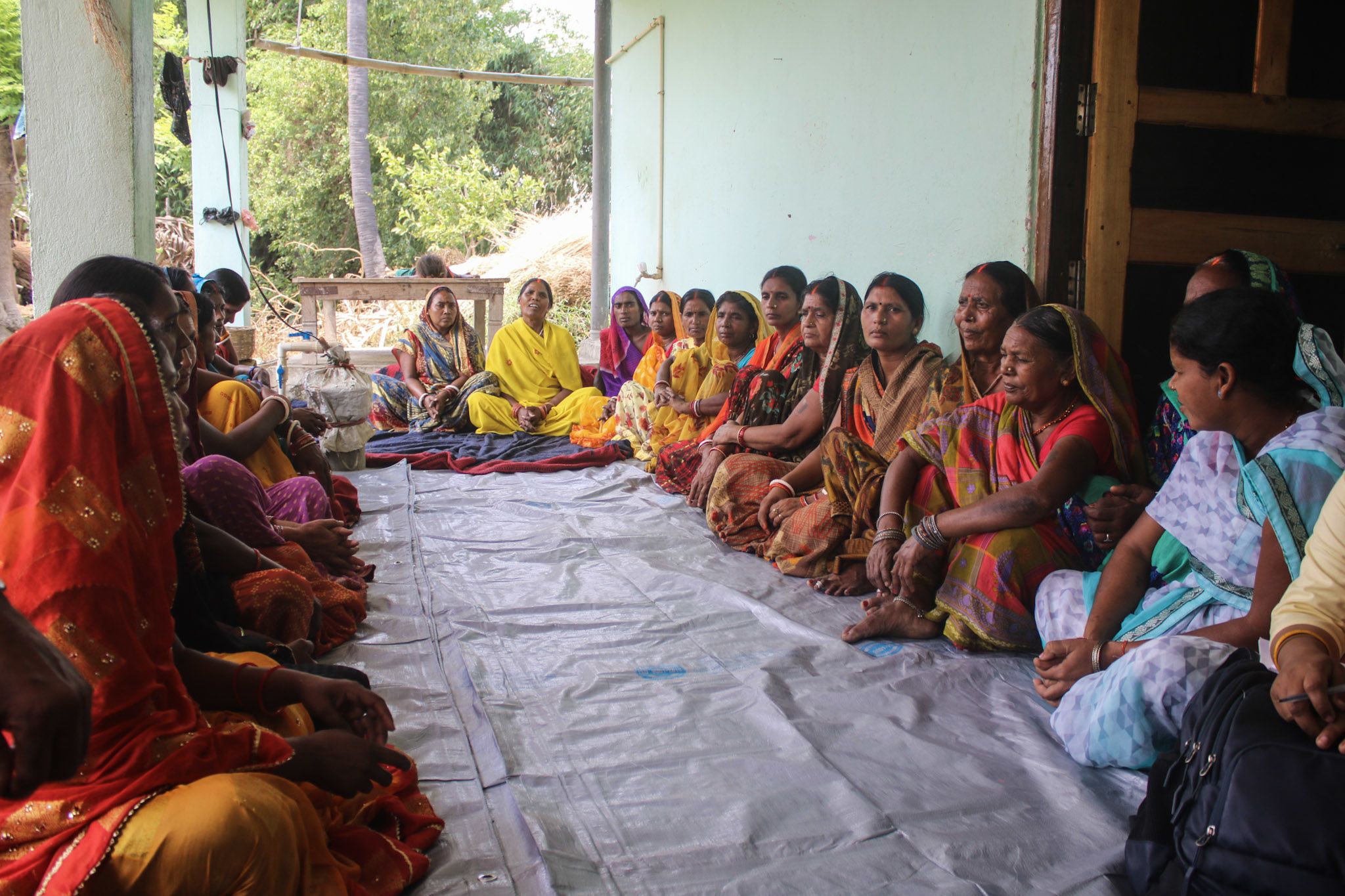
BUILDING SYNERGY
Bringing Academia, Governments and Women Farmers Together
Real, sustainable change in agriculture requires academia, governments, farmers, and local organizations to join forces to support the agroecological transition. This process bridges local knowledge with global challenges, nurturing multi-level transformation that meets farmers’ aspirations while laying the groundwork for broader systems change.
Bihar in India and eastern Nepal share significant climate-related challenges—irregular rainfall, droughts, and floods disrupt growing seasons, while soil degradation from over-reliance on chemical fertilizers threatens livelihoods and food security. In such conditions, the successful practices from one region can offer valuable solutions to others, provided communities and key stakeholders work together.
A powerful example of such cross-country collaboration happened during a learning exchange visit in India last year.
In partnership with Preservation and Proliferation of Rural Resources and Nature (PRAN), our partner in Bihar, India, we facilitated an exchange that brought together agricultural experts and government officials from Nepal with Indian women farmers in Bihar. Participants included senior agricultural leaders, government representatives, and our South Asia Regional Coordinator, Navaraj Upadhyay.
Together, they visited women farmer groups in Bihar to observe and discuss agroecological innovations and explore how these practices could be adapted to the context of Nepal.
Women farmers shared their personal stories of how transitioning to agroecology has increased their income, financial independence, and social inclusion. They directly engaged with government officials and academic leaders, advocating for the impact agroecology has had on their lives and communities. In the fields, participants saw firsthand how practices like locally-made biological seed treatments and SRI (System of Root Intensification) helped regenerate soil and increase crop yields–up to 2.8 times higher than conventional methods in some areas.
"Successful integration of natural farming with SRI methods has increased crop yields even after just one year of implementation.”
Inspired by the success stories and lessons from the field visits in Bihar, Nepalese academics and policymakers are seeking to strengthen the agroecological transition in Nepal by:
- Integrating agroecology into national research programs: Tribhuvan University has launched a research program in Nepal to test and refine regenerative farming techniques, paving the way for innovative, bottom-up and sustainable solutions in the region.
- Enacting local government support: Local municipalities have started including agroecology principles in their policy plans for farmers. Nepalese policy makers have organized training sessions on natural farming and allocated a dedicated budget to promote it. This is creating a more supportive environment for Nepalese farmers, ensuring they can access essential resources to succeed.
- Spreading knowledge across regions: We have started working with universities to create a robust framework for agroecology education and outreach programs in Nepal and India, including developing a curriculum for postgraduate university students.
This exchange has laid the foundation for continued collaboration among academia, PRAN, Groundswell International, Nepalese NGO partners, and local governments, an essential step to achieving widespread impact and creating a robust framework for sustainable agricultural development in South Asia and beyond.
2024 IMPACT IN INDIA
PRAN
213 women farmers embraced agroecological practices
52 households have a female lead agroecological farmer
97 smallholder farming households established kitchen gardens, increasing access to high nutrition crops
Hosted a workshop on agroecological techniques inaugurated by the Indian Minister of “Micro, Small, and Medium Enterprises” which was broadcast on national TV
98 households increased yields and reduced farming costs, achieving paddy yields nearly three times higher than those from conventional farming methods
Farmers cultivated 16 hectares of agroecological land - roughly the size of 16 soccer fields
Changing Mindsets
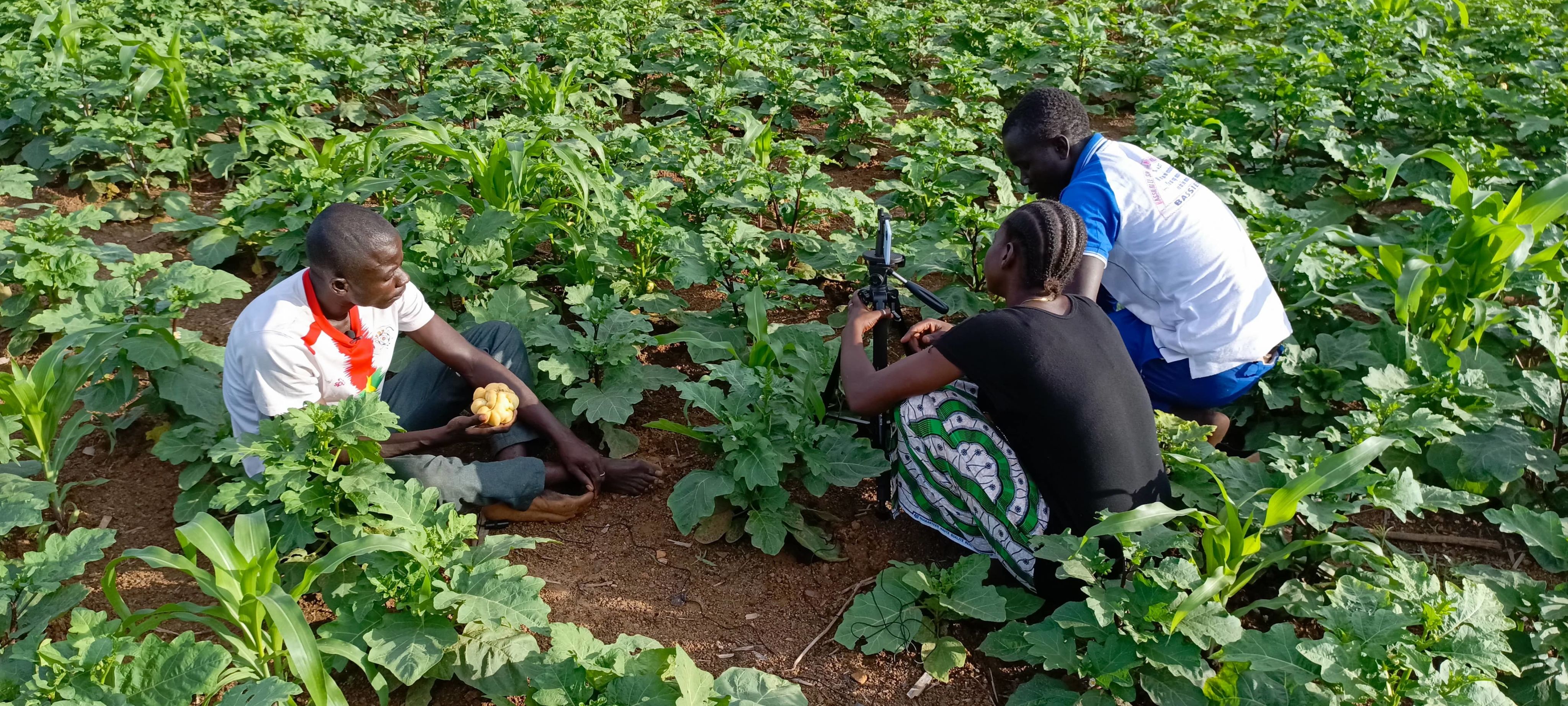
CHANGING MINDSETS
Youth Changing the Narrative
Agroecological transitions are driven by farmers shifting their mindsets and practices. Through our Youth Storyteller Program, we empower young people to lead this change by using creative expression to inspire action, amplify community voices, and challenge dominant narratives around agroecology, food systems, and the environment.
In 2024, youth across our global network created films, poems, and visual art to deepen public engagement with agroecology, demonstrating the power of storytelling to shape perceptions and provoke critical reflection on ecological and social challenges.
Last year, the Youth Storytellers reached a wider audience than ever before, elevating the visibility and urgency of agroecology. Their creative pieces took center stage at community screenings, regional gatherings, and our annual virtual film festival, Field to Film.
During this event, youth-led films sparked insightful discussions among farmers, educators, policymakers, and activists, and over 100 attendees engaged in a dynamic exchange of ideas. Their films later amassed over 24,000 views on YouTube, with some videos reaching over 10,000 views. Beyond the festival, the storytellers facilitated post-screening discussions in their communities, schools and by deepening engagement on agroecological solutions with local decision makers.
This storytelling movement spread across regional networks, amplifying agroecological narratives locally and globally. In Latin America and the Caribbean, young people reached over 7,800 individuals through media, produced 15 agroecology films, and participated in hands-on training in Ecuador to refine their storytelling skills. In West Africa, youth created more than 30 videos, engaged 1,500 farmers, and expanded agroecological discussions, with four videos broadcast on Burkina Faso’s national TV. In Mali, 50 young journalists produced 28 environmental stories, 10 of which aired on local radio, ensuring vital agroecological messages reached rural communities.
Through their creative work, the Youth Storytellers brought agroecology to the forefront, making it more visible and compelling. They documented solutions, inspired action, and amplified the voices of those most impacted by agroecological transitions. Their efforts are shifting public perceptions, deepening community engagement, and fueling momentum for a more just and sustainable food system.
Watch their short films on Youtube
Read their poems: Le Soleil by Raphaël Diarra (Mali)
See their art:
From left to right: A dónde va el agua by Saúl and Miguel, International Mountains Day poem (Honduras), Una en un millón by Pablo (Ecuador), Las floricolas contaminadas del agua by Saúl (Ecuador), Moïse’s vision for healthy farming & food systems (Mali), International No Pesticide Use Day by Saúl (Ecuador)
From left to right: A dónde va el agua by Saúl and Miguel, International Mountains Day poem (Honduras), Una en un millón by Pablo (Ecuador), Las floricolas contaminadas del agua by Saúl (Ecuador), Moïse’s vision for healthy farming & food systems (Mali), International No Pesticide Use Day by Saúl (Ecuador)
OUR GLOBAL IMPACT
1 GLOBAL NETWORK IN 11 COUNTRIES
With the help of our funders and supporters, here's what we achieved in 2024
We supported 865 community-based organizations
across 1,229 communities
with 104,636 farmers applying agroecology
regenerating over 228,400 hectares of degraded land
and improving the lives of 1,189,939 people
Moving Ahead
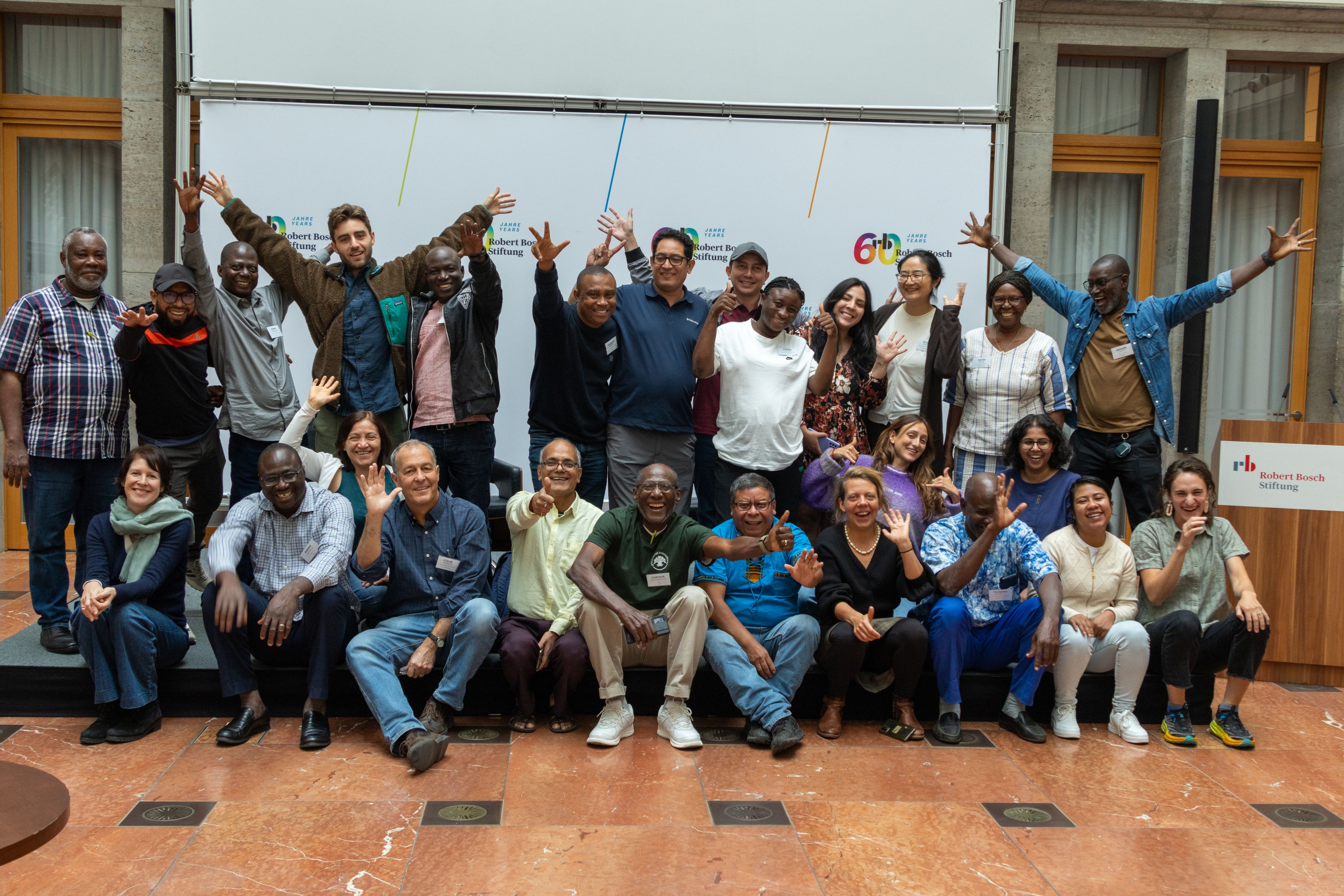
MOVING AHEAD
Collective Learning & Action at our Global Conference
In September of 2024, we held our bi-annual Global Conference with staff, NGO partners, board members and international allies in Berlin, Germany. This was a pivotal moment for reflecting on our collective impact, identifying how to strengthen our strategies, and building deeper alliances for continued collaboration.
As part of the Global Conference, we organized a learning exchange with our hosts from the Robert Bosch Foundation, inviting philanthropic and NGO allies to focus together on ensuring that farmers have a central role in experimenting with, developing, and spreading agroecological solutions.
In the field of agroecology, the principle of “co-creation of knowledge” with farmers, scientists and NGOs is paramount, but grounding that principle in authentic practice is not a simple task. At Groundswell International, we believe there is no agroecology without strengthening the agency of farmers, so we documented and discussed brief case studies of how this is accomplished in practical ways by our 14 NGO partners from 11 countries in West Africa, Latin America and the Caribbean, and South Asia.
The work you’ve seen through these pages belongs to all of us. As farmers, partners, and supporters, we are building a future where communities reclaim control over their food, land, and livelihoods. Together, we can keep scaling these agroecological alternatives, strengthening the movement towards healthier farming and food systems from the ground up. Join us in growing this movement; here’s how you can get involved.
Spread the word
Wish more people knew about Groundswell International? Share the latest updates with your friends on social media.
LinkedIn │ YouTube │ Instagram│ Facebook
Cultivate the movement
Interested in hosting an event to benefit Groundswell International? Contact us to receive tools for a successful fundraiser: info@groundswellinternational.org
Grow real solutions
We are grateful for all donations! Donate to sustain and grow Groundswell International’s impact.
Leave your legacy
Want to make a legacy gift that will continue to bear fruit for years to come? Please reach out to cguntupalli@groundswellinternational.org to learn more.
Support the farmer-led transition
We need continued support to help farmers lead the way in transforming our food systems from the ground up, safeguarding future generations' rights to a fulfilling life.
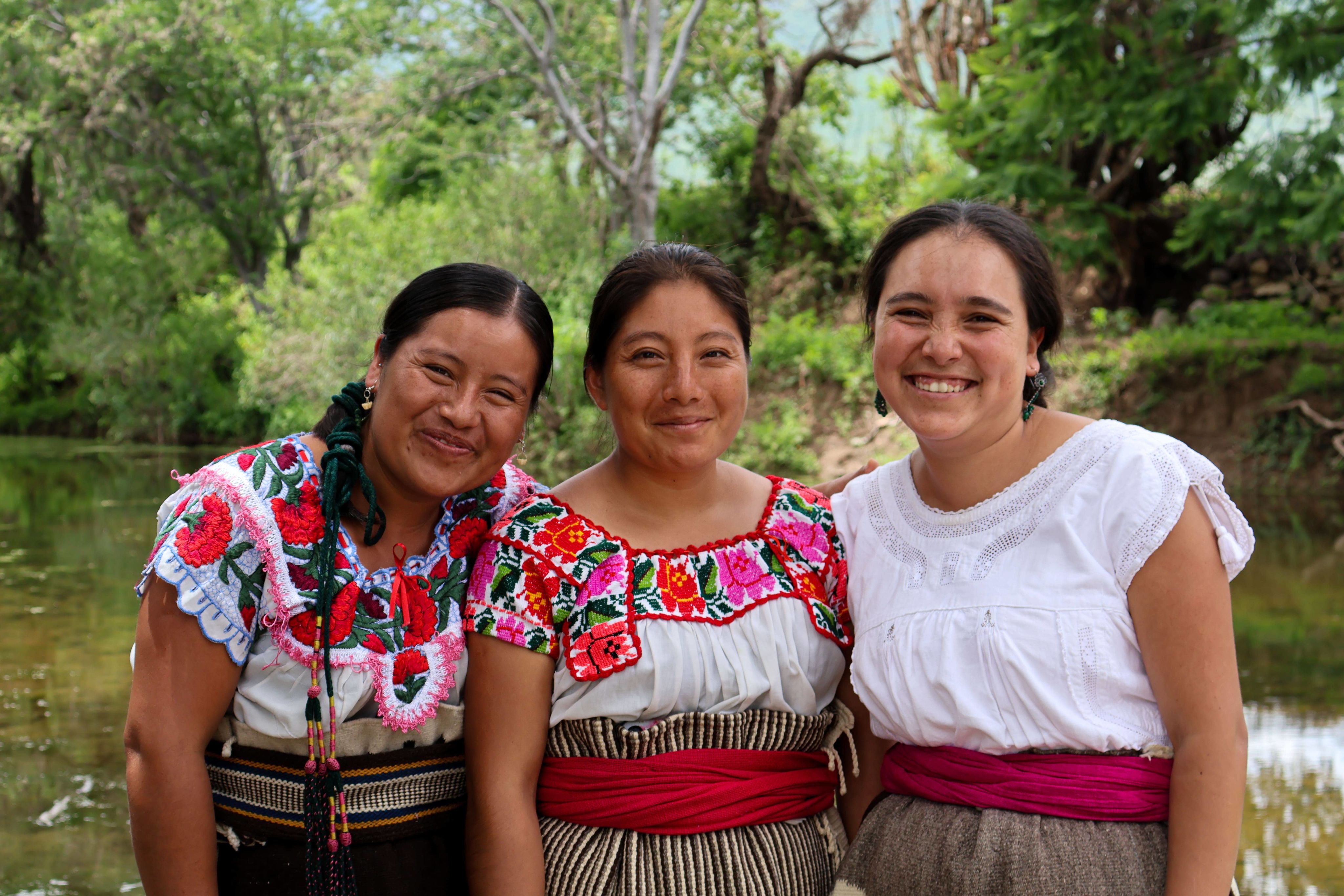
2024 Financial Report
FY 2024 Audit and 990 available on our website. Full financials available upon request.
Access details of our staff, funders, and Board in the PDF version of this report
Groundswell International, Inc.
1025 Thomas Jefferson Street NW, Suite 400,
Washington, DC 20007
info@groundswellinternational.org
Authors: Steve Brescia, Maylis Moubarak, Chandana Guntupalli



